-
General Staff: Russia has lost 1,017,720 troops in Ukraine since Feb. 24, 2022
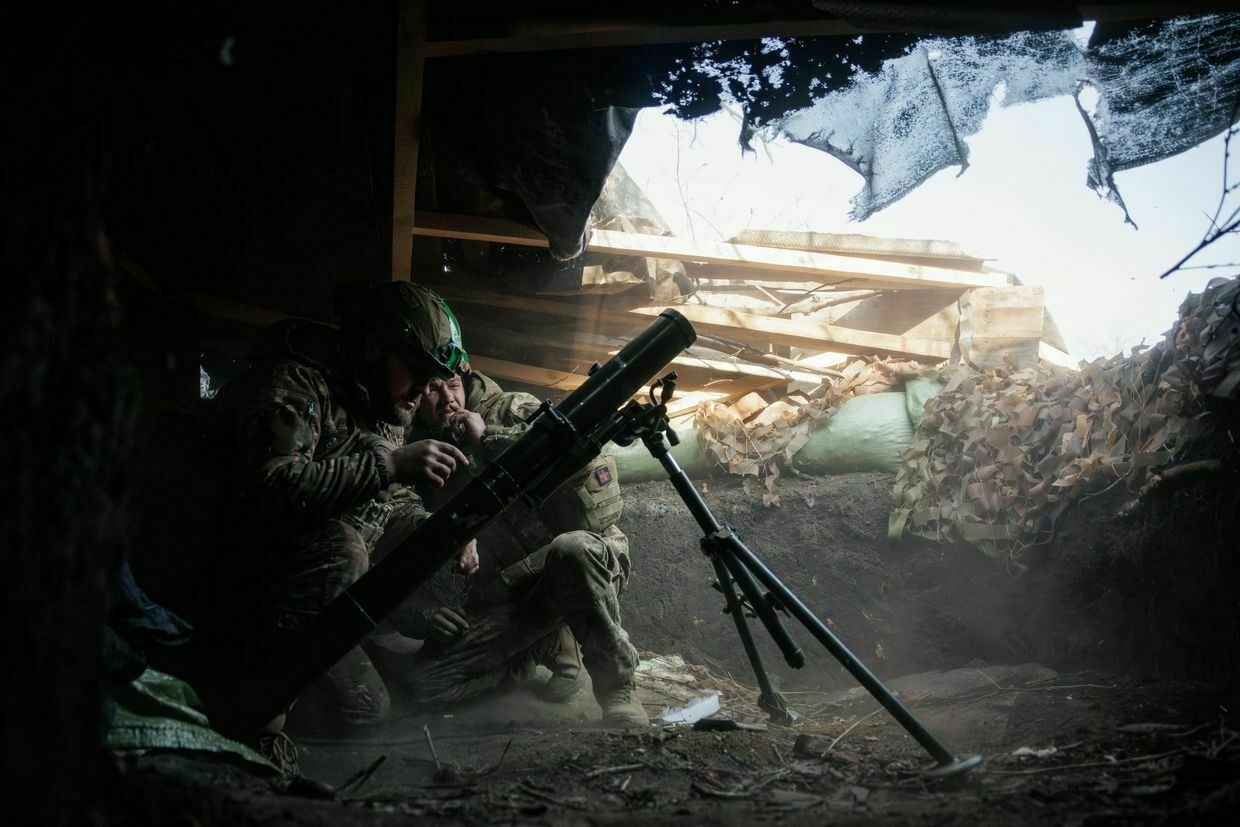
Russia has lost around 1,017,720 troops in Ukraine since the beginning of its full-scale invasion on Feb. 24, 2022, the General Staff of Ukraine’s Armed Forces reported on June 28.
The number includes 1,000 casualties that Russian forces suffered just over the past day.
According to the report, Russia has also lost 10,970 tanks, 22,908 armored fighting vehicles, 53,415 vehicles and fuel tanks, 29,665 artillery systems, 1,425 multiple launch rocket systems, 1,189 air defense systems, 420 airplanes, 337 helicopters, 42,477 drones, 28 ships and boats, and one submarine.
Russia has amassed 111,000 troops near Pokrovsk, Syrskyi saysPokrovsk remains the “hottest spot” along the front line but “the situation is under control” and Russia has not crossed the administrative border from Donetsk to Dnipropetrovsk Oblast, Commander-in-Chief Oleksandr Syrskyi said.The Kyiv IndependentAbbey Fenbert
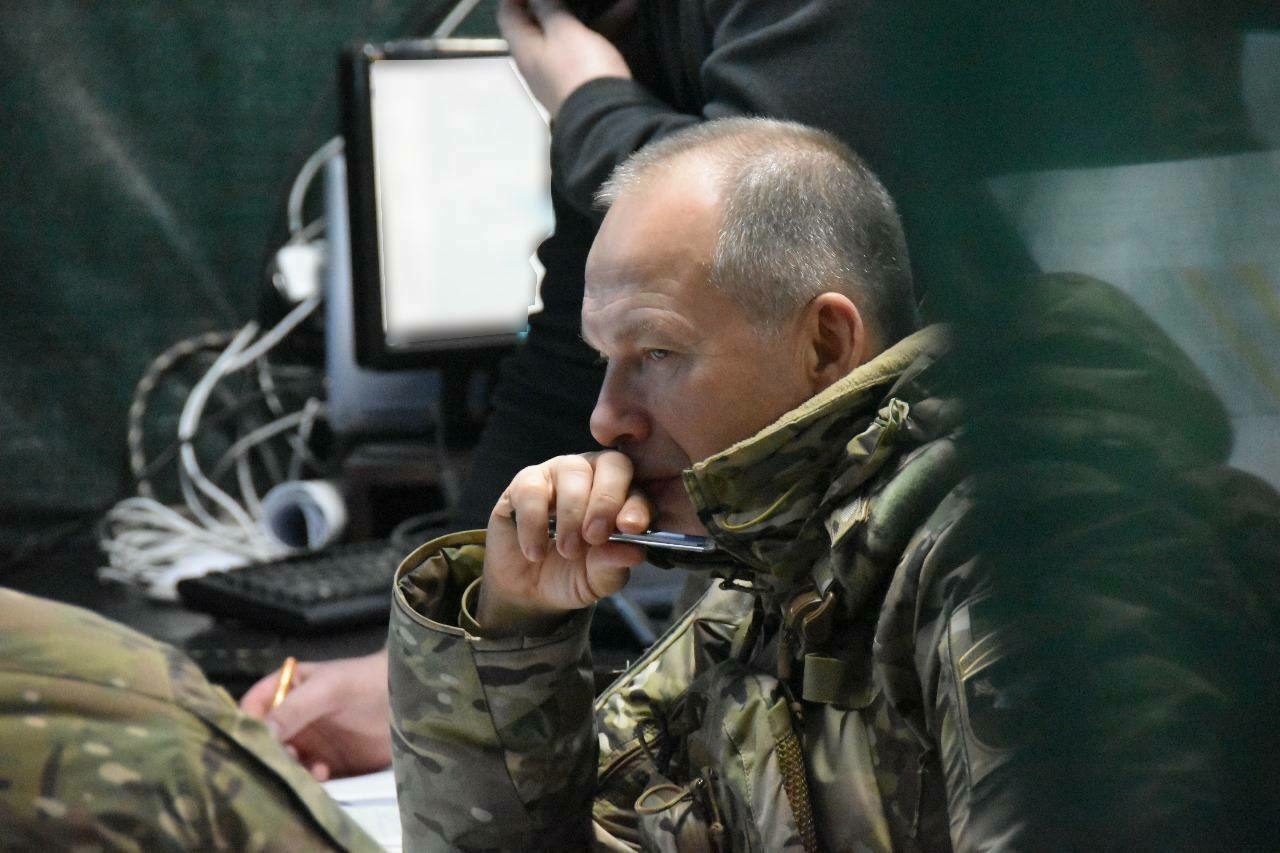
-
Married couple killed in Russian drone strike on Odesa high-rise
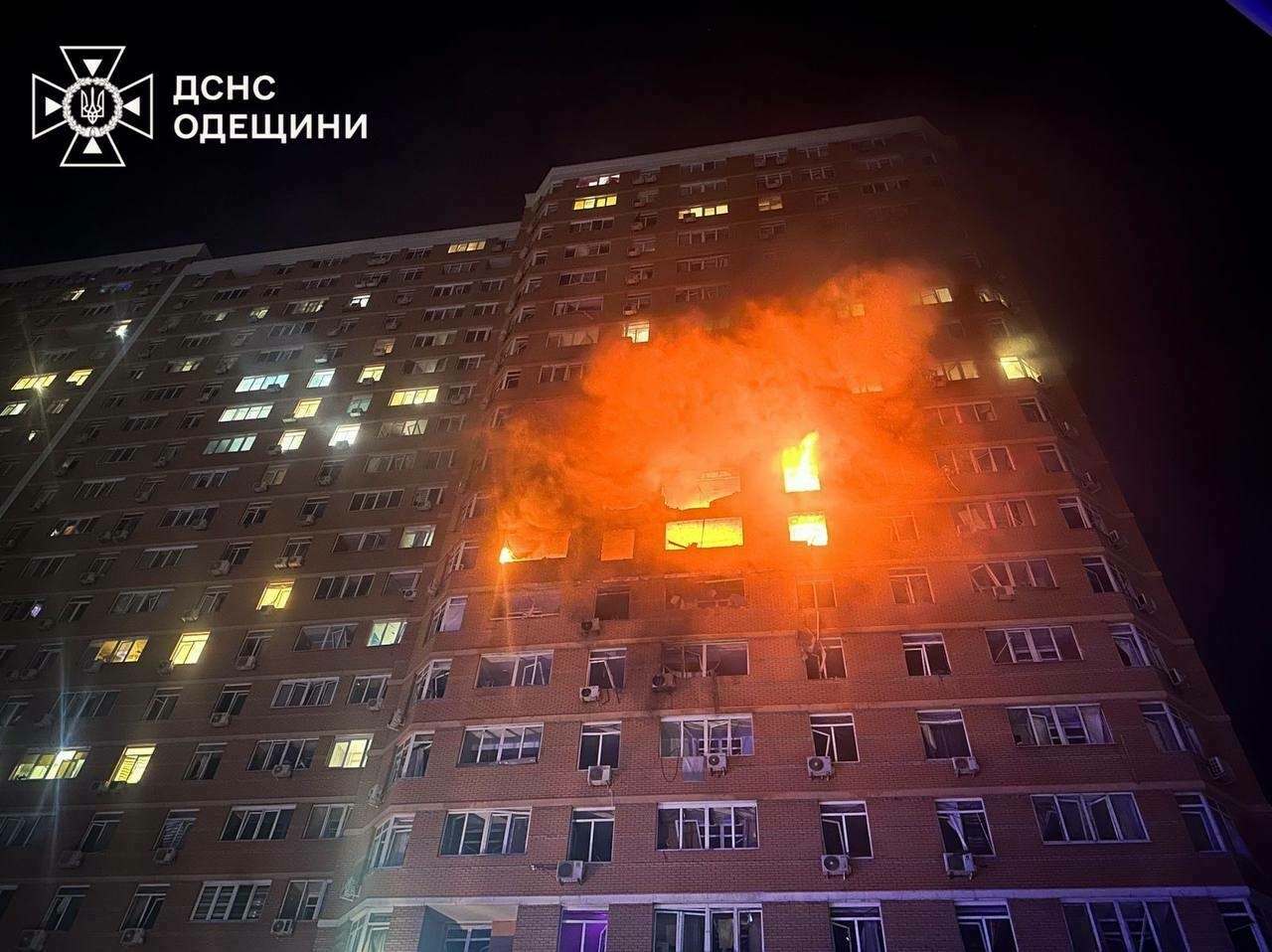
Editor’s Note: This is a developing story.
Russia attacked the southern city of Odesa overnight on June 28, killing two people and injuring at least four others, Ukraine’s State Emergency Service reported.
The drone attack hit a 21-story building, causing a fire on the 7th, 8th, and 9th floors that left residents trapped in their apartments. Emergency responders rescued five people, including a small child.
Two people, a married couple, were killed in the attack, Odesa Oblast Governor Oleh Kiper reported. Emergency workers recovered their bodies from the damaged building.
At least four other civilians were injured. Two of the victims were children, one 7 and the other 3 years old. Both are receiving treatment in medical facilities, Kiper said.
Ongoing air raid alarms throughout the night complicated rescue efforts, the State Emergency Service said.
Odesa, a port city on Ukraine’s Black Sea coast with a population of around 1 million, has been a frequent target of Russian attacks since the full-scale invasion. A massive Russian drone strike on June 20 killed one civilian and injured 14 others, including three first responders.
Russian missile and drone attacks on Ukrainian cities have intensified dramatically in May and June.
Ukraine war latest: Ukrainian drones reportedly strike 4 fighter jets in RussiaKey developments on June 27: * Ukraine war latest: Ukrainian drones reportedly strike 4 fighter jets in Russia * North Korea deployed 20% of Kim’s elite ‘personal reserve’ to fight against Ukraine in Russia, Umerov says * Pro-Palestinian activists reportedly destroy military equipment intended for Ukraine * Zelensky signs decree to synchronize Russia sanctionsThe Kyiv IndependentThe Kyiv Independent news desk
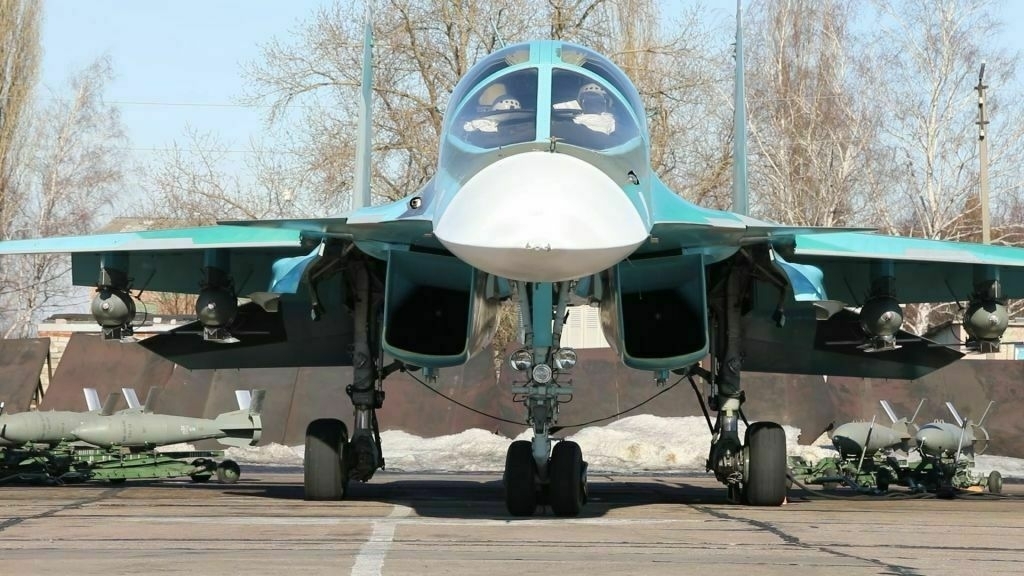
-
Half of Americans support sanctions on countries that buy Russian oil and gas, poll finds
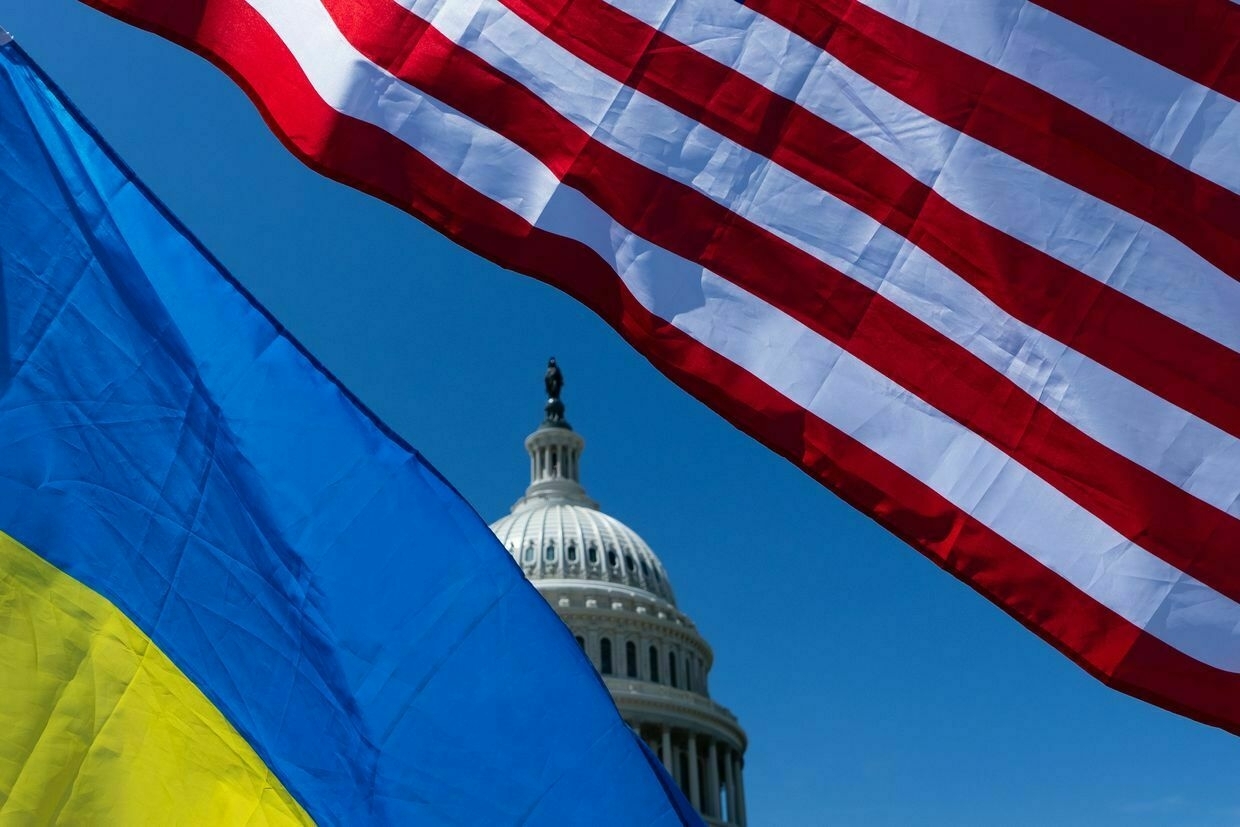
Around 50% of Americans support sanctions against countries that purchase Russian oil and gas, according to the results of a YouGov poll published on June 27.
A bipartisan sanctions bill in the U.S. Senate aims to slap 500% tariffs on imports from countries that continue to purchase Russian energy products. U.S. President Donald Trump has not backed the measure and a vote on the bill has reportedly been postponed.
In a YouGov survey of adult U.S. citizens conducted June 12-16, 24% said they “strongly support” sanctioning Russian energy buyers while 25% said they “somewhat support” secondary sanctions against these countries.
Like the Senate bill, support for secondary sanctions among respondents was bipartisan. Of “strong supporters,” 26% indentified as Democrats while 27% were Republicans.
More Republicans than Democrats said they favored the specific 500% tariff penalty proposed by legislators. While 29% of respondents who “strongly supported” the measure were Democrats, 41% were Republicans. Only 32% of survey respondents overall said they supported the 500% tariff.
The 500% tariff has been championed by Republican Senator Lindsey Graham, a Trump ally and co-author of the sanctions bill alongside Democrat Richard Blumenthal. Along with tariffs on countries purchasing Russian oil, the bill would also slap “bone-crushing” new sanctions against Russia, according to Graham.
A majority of Americans support increasing or maintaining U.S. sanctions against Russia, the survey found. Here the division along party lines is stark, with 59% of those in favor of increasing sanctions on Moscow identifying as Democrats and only 37% identifying as Republicans.
The poll also showed that about 50% of Americans oppose cutting military aid to Ukraine. According to YouGov, 26% of U.S. adults are in favor of increasing military aid while 23% believe Washington should maintain its current levels of support.
The results illustrate the contrast between the prevailing views of the American public and the policies of the Trump administration. Trump has repeatedly undercut the Senate sanctions bill, requesting delays to the vote and calling on lawmakers to weaken the proposed measures.
While Trump has at times threatened to impose new sanctions on Russia, he has never followed through on any of those threats and consistently shoots down domestic and international appeals to get tough on Moscow. At the recent G7 Summit in Canada, Trump reportedly insisted that sanctions would be at odds with U.S. business interests.
U.S. Defense Secretary Pete Hegseth also announced earlier this month that Washington will cut military aid to Ukraine in its upcoming defense budget.
‘Putin cannot stop’ – Estonian foreign minister says war in Ukraine existential for Russian presidentAs Russia continues to intensify its onslaught on Ukraine more than three years into the full-scale invasion, Kyiv faces a new challenge – keeping its Western allies, namely the new U.S. administration, engaged in the struggle. This became clear during the NATO summit in The Hague on June 24-25, whereThe Kyiv IndependentMartin Fornusek
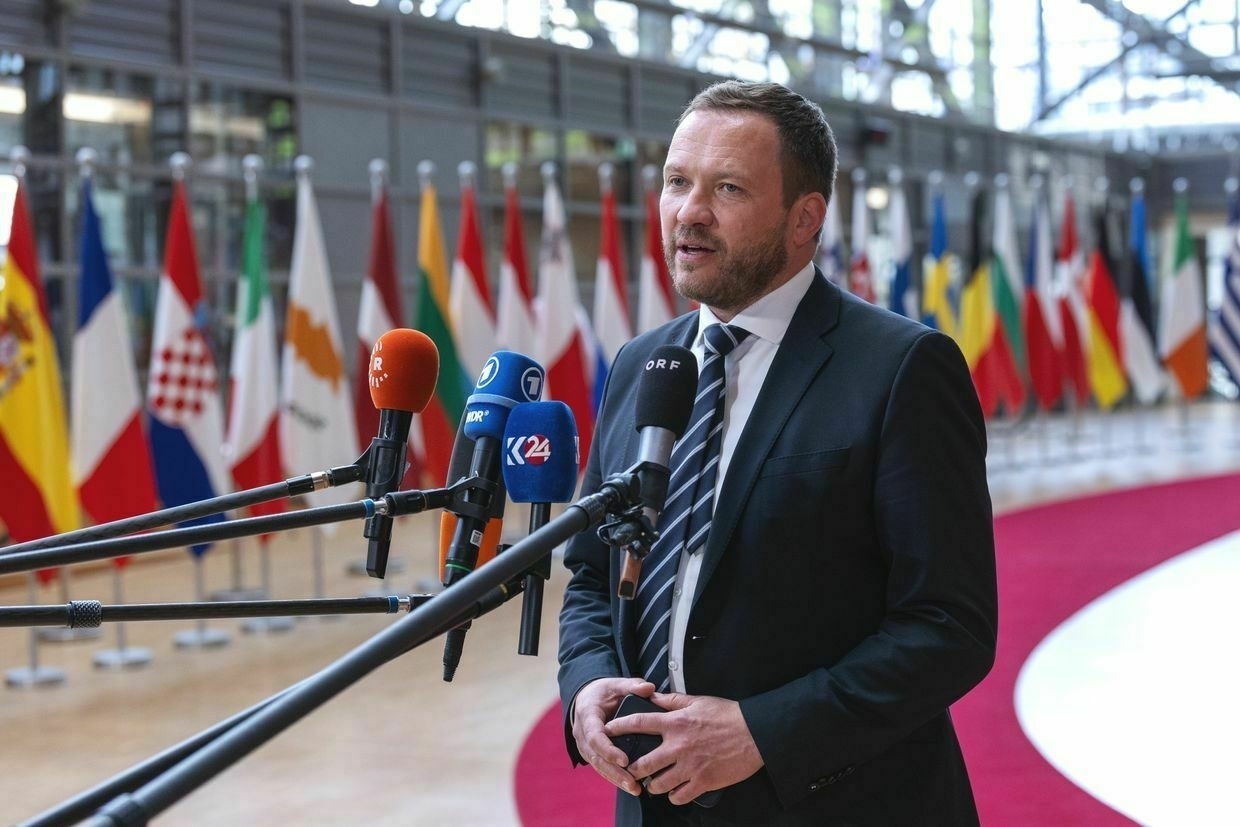
-
Ukrainian weapons account for more than 40% of arms used in defense against Russia, Zelensky says
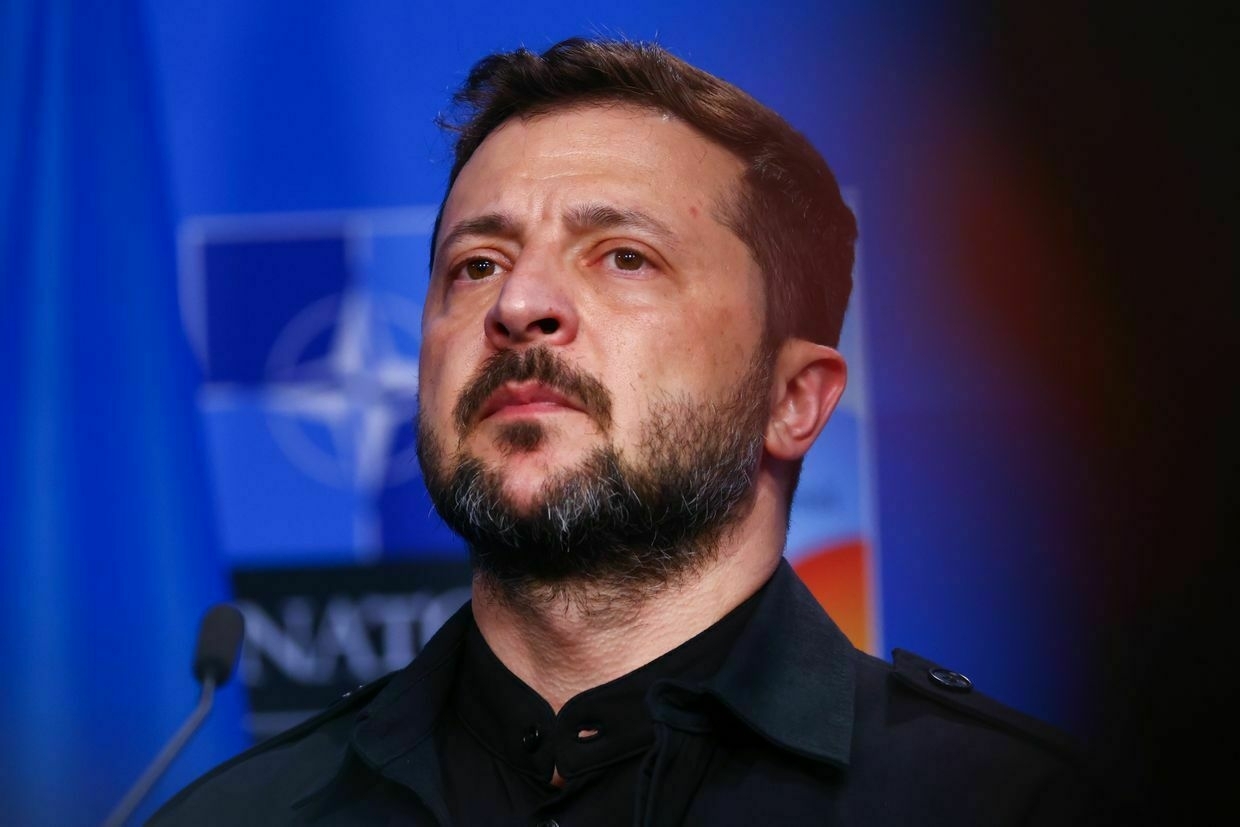
Ukraine provides over 40% of the weapons used to defend the nation’s independence against Russia’s full-scale invasion, President Volodymyr Zelensky said at the State and Business Forum in Kyiv on June 27.
As Ukraine scales up domestic defense production, Zelensky has been lobbying foreign partners to provide funding to help match its manufacturing capacity.
The government and Ukrainian businesses now provide more than 40% of the weapons the country uses in its fight against Russia, Zelensky said. Business-driven innovations in technology have helped Ukraine on the battlefield, particularly in drone development.
“Thanks to Ukrainian entrepreneurship and all the conditions we have created as a state, a new sector of our domestic manufacturing has emerged and immediately become one of the world’s most advanced — the production of drones of various types,” Zelensky said.
“Hundreds of companies are now involved in weapons production in one way or another.”
Zelensky’s comments come a day after Defense Minister Rustem Umerov reported that Ukrainian companies have increased their industrial capacity in order to produce four million drones a year.
At the NATO summit in The Hague on June 24, Zelensky said Ukraine could potentially produce as many as eight million drones per year, but lacks the financial backing to achieve its full capacity. During the summit, Ukraine signed agreements on joint weapons production with the U.K. and Denmark in an effort to bridge the gap between Kyiv’s capacity and current funds.
Ukraine has rapidly developed its drone capabilities since 2022, evolving from modifying commercial aircraft to producing military UAVs, attack drones, and reconnaissance systems at scale.
Operation Spiderweb, a mass attack on four key military airfields in Russia, was carried out entirely with Ukrainian drones.
Ukraine war latest: Ukrainian drones reportedly strike 4 fighter jets in RussiaKey developments on June 27: * Ukraine war latest: Ukrainian drones reportedly strike 4 fighter jets in Russia * North Korea deployed 20% of Kim’s elite ‘personal reserve’ to fight against Ukraine in Russia, Umerov says * Pro-Palestinian activists reportedly destroy military equipment intended for Ukraine * Zelensky signs decree to synchronize Russia sanctionsThe Kyiv IndependentThe Kyiv Independent news desk
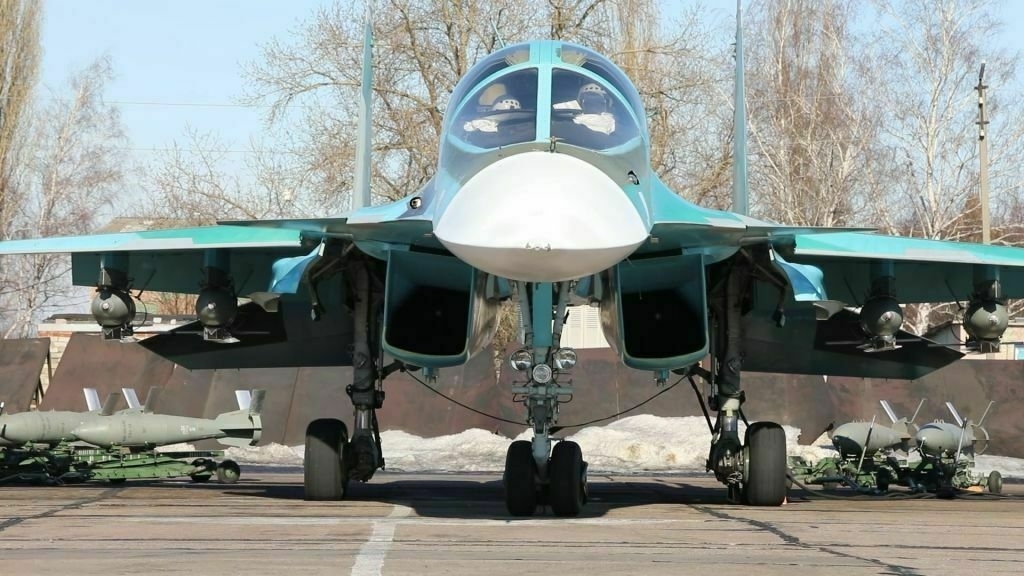
-
Zelensky to impose long-term moratorium on business inspections in Ukraine
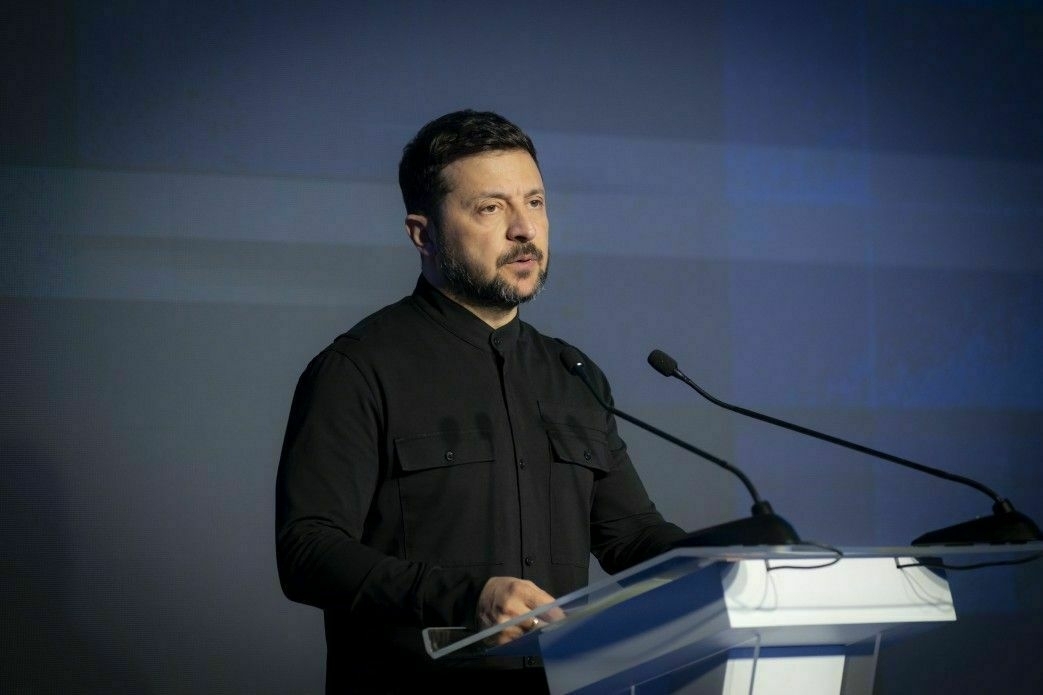
President Volodymyr Zelensky has instructed government officials to prepare a decision introducing a long-term moratorium on business inspections in Ukraine, the Presidential Office announced on June 27.
Zelensky discussed the moratorium during an address at the “State and Business Forum: From Dialogue to Partnership,” held in Kyiv.
“I have instructed that a decision on a long-term moratorium on business inspections be prepared to protect businesses from any pressure by unscrupulous individuals in various government positions,” he said.
Economic growth is a vital component of Ukrainian resilience, necessitating ongoing dialogue between the government and entrepreneurs, Zelensky said. In addition to imposing the moratorium on inspections, Kyiv will also expand the Council for Entrepreneurship Support in an effort to cultivate entrepreneurship in Ukraine.
“Even under such harsh conditions of this war, Ukraine can rely on its entrepreneurs — on our domestic Ukrainian manufacturing, our Ukrainian logistics, our Ukrainian services across all sectors — from security to everyday life, as well as on Ukrainian developments and investments,” the president said.
Following Russia’s full-scale invasion in early 2022 and the onset of martial law, Ukraine temporarily suspended certain business regulations, including tax inspections for businesses. Zelensky signed a law resuming tax inspections for certain businesses in December 2023.
Now in its fourth year of full-scale war against Russia, Ukraine’s economy is still attempting to recover from the massive blow dealt in 2022, when the GDP dropped by 29.1%. At the same forum on June 27, Ukraine’s new Prosecutor General Ruslan Kravchenko announced another measure meant to boost business: an audit of criminal cases related to businesses in Ukraine.
“The second priority is to finally sort out the proceedings related to business, protect business, and achieve justice in these matters,” Kravchenko said.
The Prosecutor’s Office will be dedicated to “ensuring the rights of investors and businesses,” Kravchenko wrote on his Telegram channel on June 26. Efforts to safeguard businesses will not interfere with Ukraine’s legal obligations and the regulatory reforms required for its integration into the European Union, he said.
Ukraine’s new top prosecutor known for high-profile cases, seen as Zelensky loyalistLoyalty to the incumbent administration has been the key requirement for prosecutor generals in Ukraine. Ruslan Kravchenko, who was appointed as prosecutor general on June 21, appears to be no exception. Previously he had been appointed as a military governor by President Volodymyr Zelensky and is seen as a presidential loyalist. Kravchenko became Ukraine’s top prosecutor after a lengthy hiatus during which the position of prosecutor general remained vacant. His predecessor, Andriy Kostin, r The Kyiv IndependentOleg Sukhov
The Kyiv IndependentOleg Sukhov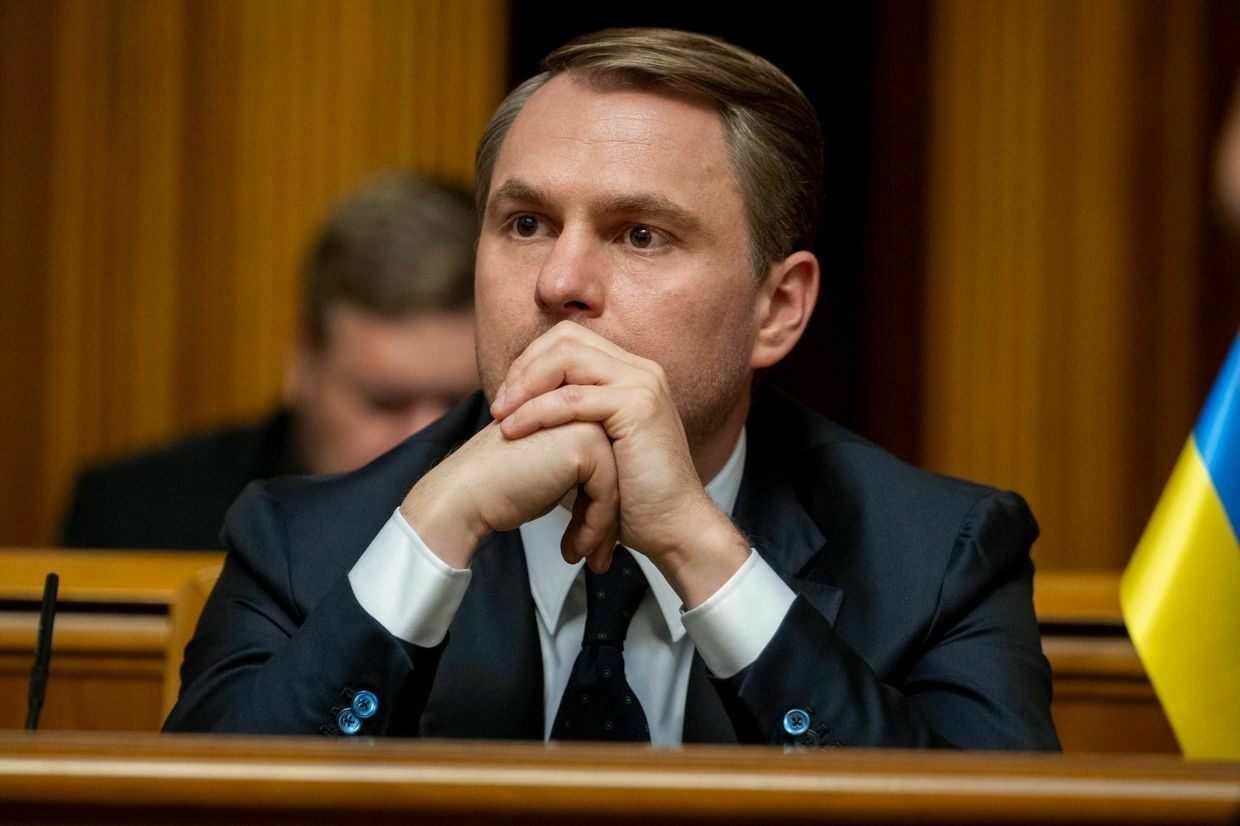
-
Russia has amassed 111,000 troops near Pokrovsk, Syrskyi says
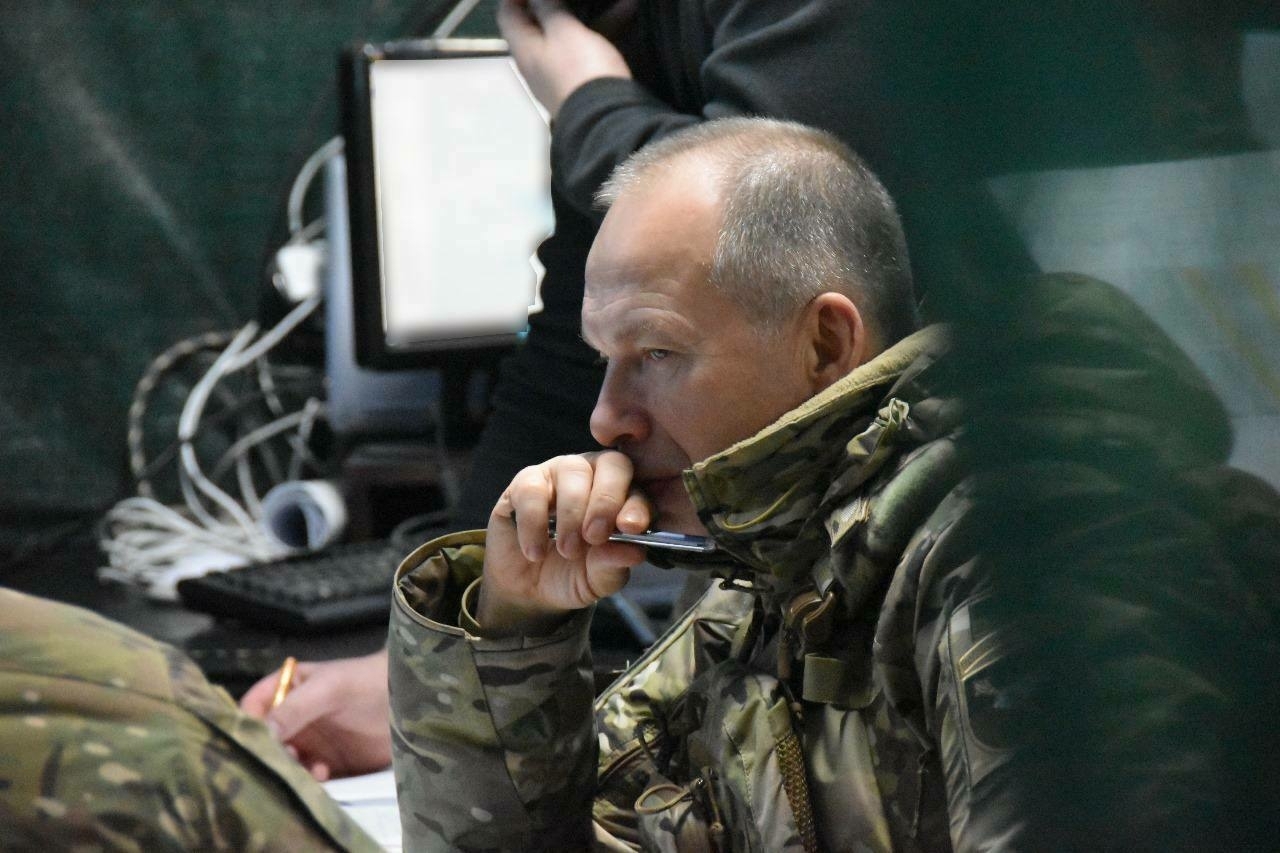
Pokrovsk remains the “hottest spot” along Ukraine’s front lines, with Russia concentrating its largest group of personnel in that direction — a force numbering 111,000 troops, Commander-in-Chief Oleksandr Syrskyi reported on June 27.
Russia has for months focused its offensive efforts on the embattled town of Pokrovsk in Donetsk Oblast and has recently been escalating attempts to break through to neighboring Dnipropetrovsk Oblast, a region that has not yet seen combat. Ukraine denied reports that Russian forces breached the regional border in May and June.
In May, Syrskyi reported that Ukraine had stabilized the situation in Pokrovsk.
After a working visit to the Pokrovsk sector, Syrskyi on June 27 said that the city is still “the hottest spot along the entire 1,200-kilometer front line” with nearly 50 combat clashes recorded per day. It’s also where Russia has concentrated the bulk of its forces in Ukraine.
Russia has amassed “about 111,000 personnel” in the Pokrovsk sector, Syrskyi said, but Ukrainian forces are holding the line.
“The enemy continues to try to break through to the administrative border of Donetsk Oblast … Russian sabotage and assault groups were particularly active here two weeks ago,” Syrskyi said.
“But they were all destroyed or neutralized, and the remnants were pushed back from the administrative border. The situation is under control."
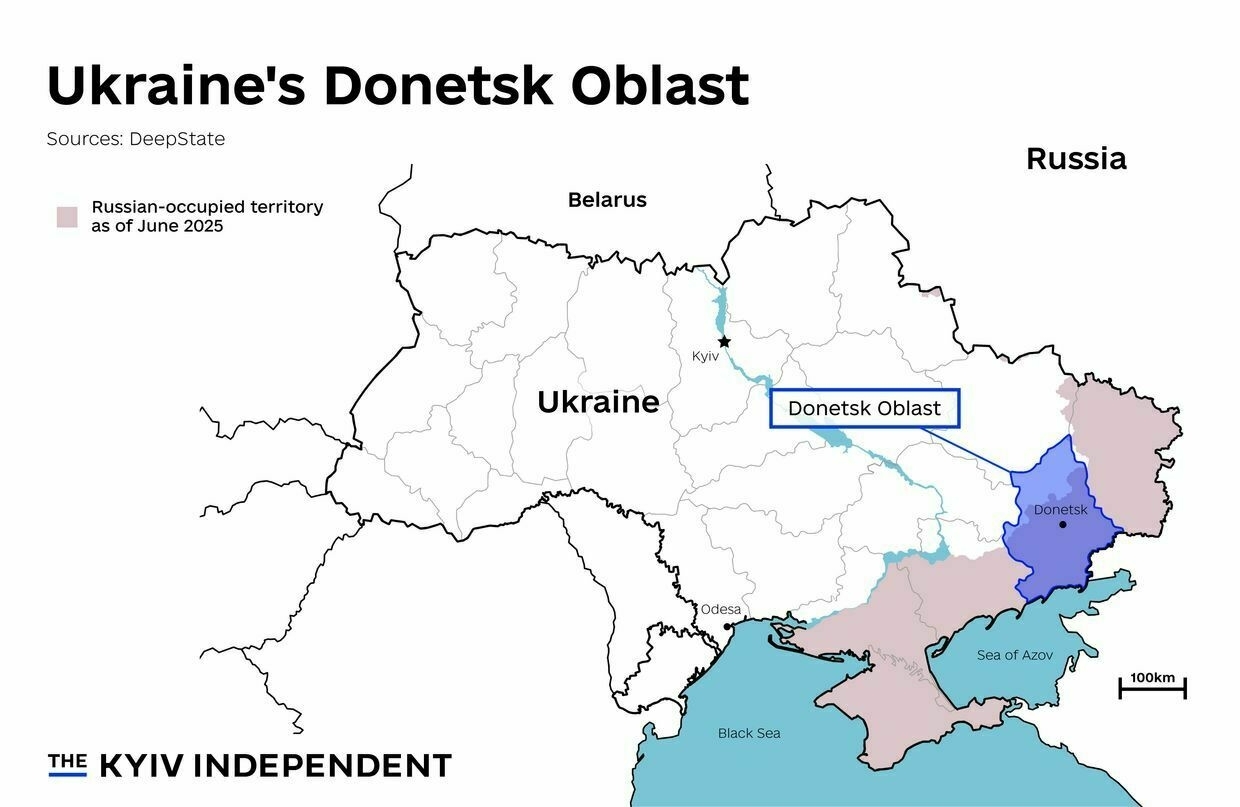
Ukraine’s Donetsk Oblast (Nizar al-Rifai/The Kyiv Independent) Russia is attempting to break into Dnipropetrovsk Oblast not only for operational reasons, but also for performative ones, Syrskyi said.
“To achieve a psychological effect: to put the infamous ‘foot of the Russian soldier’ there, plant a flag, and trumpet another pseudo-‘victory.'"
Syrskyi’s comments echo recent remarks by Russian President Vladimir Putin, who claimed in a propaganda-heavy speech on June 20 that “wherever the foot of a Russian soldier steps is Russian land.” President Volodymyr Zelensky fired back the next day, promising “Ukrainian drones for the foot of every Russian soldier.”
While Putin claimed on June 27 that Moscow is “ready” for a third round of peace talks with Kyiv, the Kremlin has sent no signal that it’s ready to abandon its maximalist ambitions in Ukraine.
Russia’s so-called “peace memorandum” demands that Ukraine recognize Russia’s annexation of Crimea, as well as Kherson, Donetsk, Zaporizhzhia, and Luhansk oblasts — none of which are fully under Moscow’s control.
Zelensky’s Deputy Chief of Staff Pavlo Palisa said on June 6 that Russia aims to occupy all Ukrainian territory east of the Dnipro River and advance toward Odesa and Mykolaiv in a broader plan to sever Ukraine’s access to the Black Sea amid a renewed summer offensive.
Ukraine war latest: Ukrainian drones reportedly strike 4 fighter jets in RussiaKey developments on June 27: * Ukraine war latest: Ukrainian drones reportedly strike 4 fighter jets in Russia * North Korea deployed 20% of Kim’s elite ‘personal reserve’ to fight against Ukraine in Russia, Umerov says * Pro-Palestinian activists reportedly destroy military equipment intended for Ukraine * Zelensky signs decree to synchronize Russia sanctionsThe Kyiv IndependentThe Kyiv Independent news desk
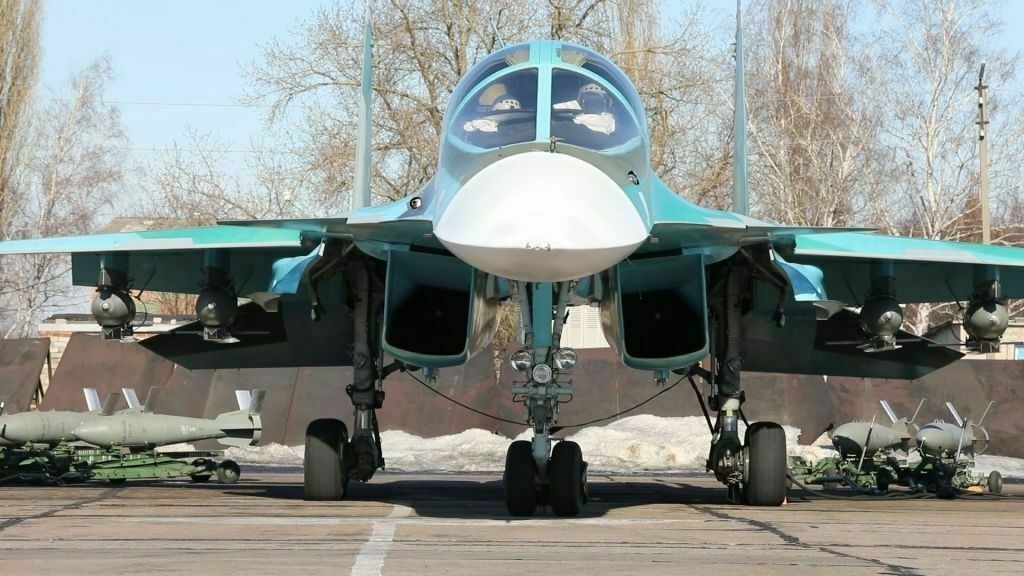
-
Ukraine imposes new sanctions on Russian individuals, Chinese company involved in Shahed drone production
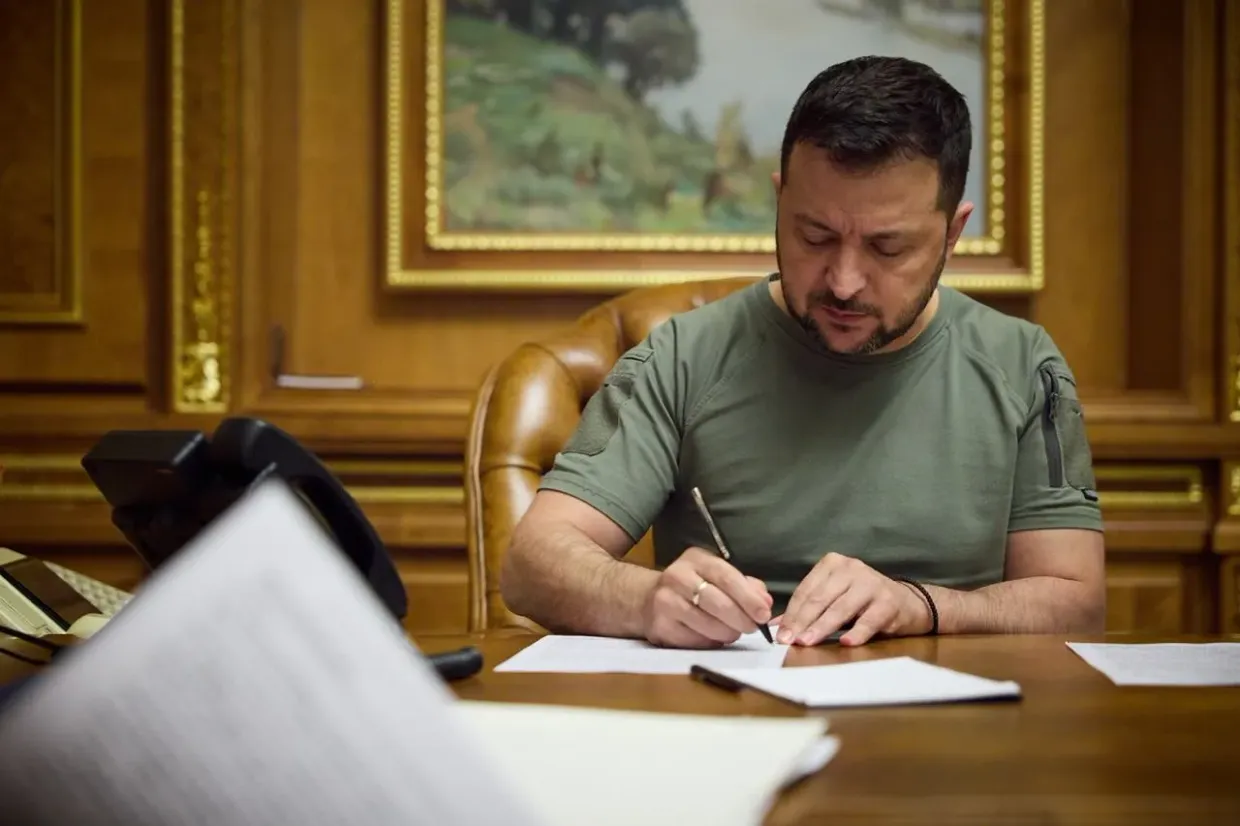
President Volodymyr Zelensky signed a decree on June 27 imposing sanctions on 52 Russian citizens as well as an additional 34 Russian companies and one Chinese entity involved in the production of Shahed-type drones and chip manufacturing machinery.
Ukraine introduced new restrictions as Russia has escalated drone attacks against Ukrainian cities over the past weeks, launching upwards of 400-500 unmanned aerial vehicles (UAVs) per night.
Individuals and legal entities subject to Ukrainian sanctions cannot do business and trade in Ukraine, cannot withdraw their capital from the country. In the meantime, their assets are blocked, as well as their access to public and defense procurement, and entry into the territory of Ukraine, among other restrictions.
Andrii Yermak, head of the Presidential Office, said on Telegram that the sanction primarily enterprises and individuals collaborating with a Shahed manufacturing facility located in the town of Yelbuga in Russia’s Tatarstan.
Russia has launched thousands of cheap but effective Iranian-designed Shahed drones against Ukraine since the fall of 2022. Originally designed in Iran, Russia has since produced its own Shahed-type drones on Russian territory.
Drones have become one of the defining tools of the full-scale war, used extensively by both Ukraine and Russia for surveillance, long-range strikes, and tactical battlefield advantage.
Earlier in the day, Zelensky signed a decree to coordinate sanctions against Russia with international partners, particularly the European Union and the Group of Seven (G7).
EU reportedly fails to adopt new Russia sanctions due to Hungarian, Slovak oppositionUnlike Ukraine-skeptic Hungarian Prime Minister Viktor Orban, Slovakia has not previously attempted to block EU sanctions. The Kyiv IndependentKateryna Hodunova
The Kyiv IndependentKateryna Hodunova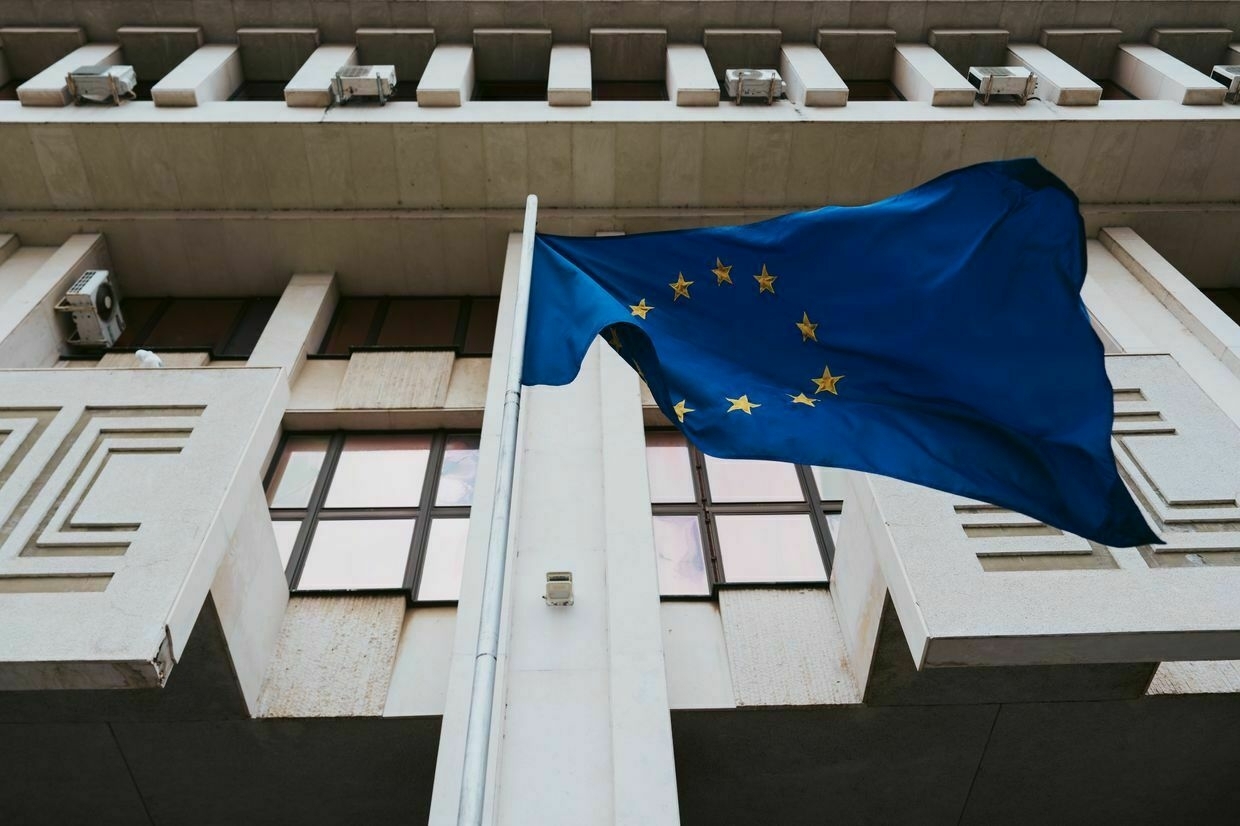
-
Despite escalating war plans, Putin claims Russia will cut military spending starting in 2026
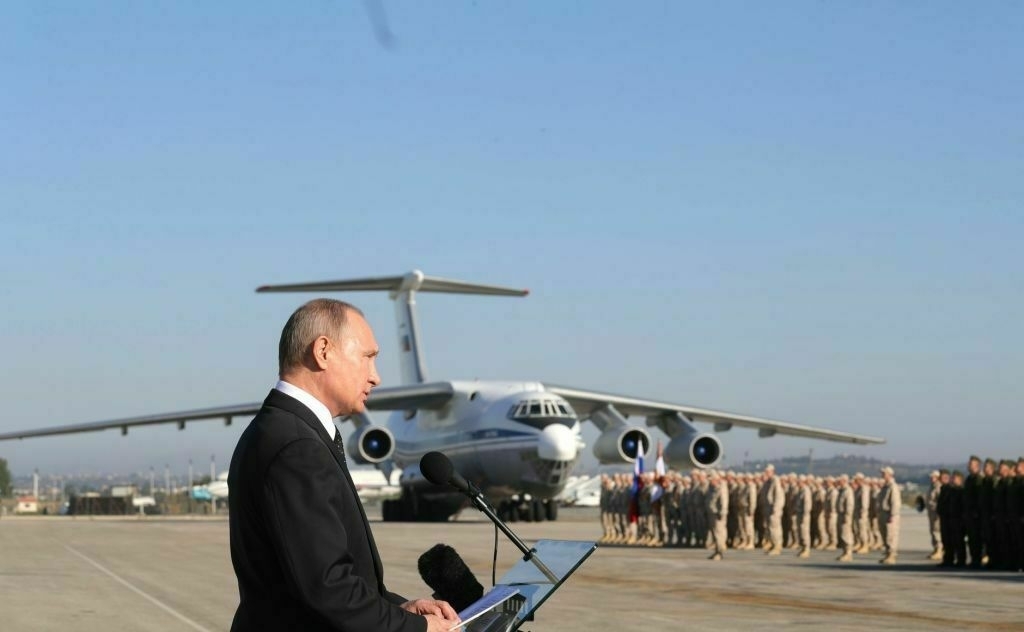
Russian President Vladimir Putin claimed on June 27 that Moscow plans to cut its military expenditure beginning next year, in a rebuke of NATO members' plans to increase defense spending to 5% of GDP.
Putin’s claims will likely be met with harsh skepticism from Western officials as Russia’s military spending has continued to increase throughout its ongoing invasion of Ukraine.
The Kyiv Independent cannot verify claims made by Putin. The Russian president did not provide any specifics as to how Moscow plans to cut military spending, but added there has yet to be an agreement between ministries.
“We are planning to reduce defence spending. For us, next year and the year after, over the next three-year period, we are planning for this,” Putin told reporters during a visit to Belarus. “Europe is thinking about how to increase its spending, on the contrary. So who is preparing for some kind of aggressive actions? Us or them?” Putin continued.
Putin’s comments comes as NATO allies are increasingly concerned about Russia’s military capabilities, including future threats to alliance members as well as ongoing sabotage efforts.
On June 25, NATO member states agreed to a new defense spending benchmark, committing to allocate 5% of their GDP annually to defense and security-related expenditures by 2035.
The decision comes as NATO allies increasingly believe Russia could rebuild sufficient military capacity to challenge the alliance within five years, with NATO Secretary General Mark Rutte warning that allies must act urgently to prepare for future threats.
“We see Russia’s deadly terror from the skies over Ukraine every day. We must be able to defend ourselves from such attacks,” Rutte said during a press briefing on June 23. “Our security environment has changed, and not for the better. The threats we face today demand that we do far more,” he added.
Various European intelligence agencies as well as officials have increasingly delivered dire warnings about the threat emanating from Russia and Europe’s current lack of preparedness. German intelligence chief Bruno Kahl told a parliamentary hearing in October that Russia will have the military capabilities to be able to attack NATO by 2030.
In 2024, Russia’s military spending surpassed the combined defense budgets of all European nations. Russia’s total defense expenditures surged by 42% in real terms amounting to $462 billion, according to the data by the International Institute for Strategic Studies (IISS).
By comparison, total defense spending across Europe, including the U.K. and EU member states, increased by nearly 12% last year to $457 billion, slightly trailing Moscow’s budget.
The Moscow Times reported in December that the Kremlin had spent an unprecedented $43 billion in the third quarter of 2024 alone.
‘Putin cannot stop’ – Estonian foreign minister says war in Ukraine existential for Russian presidentAs Russia continues to intensify its onslaught on Ukraine more than three years into the full-scale invasion, Kyiv faces a new challenge – keeping its Western allies, namely the new U.S. administration, engaged in the struggle. This became clear during the NATO summit in The Hague on June 24-25, whereThe Kyiv IndependentMartin Fornusek
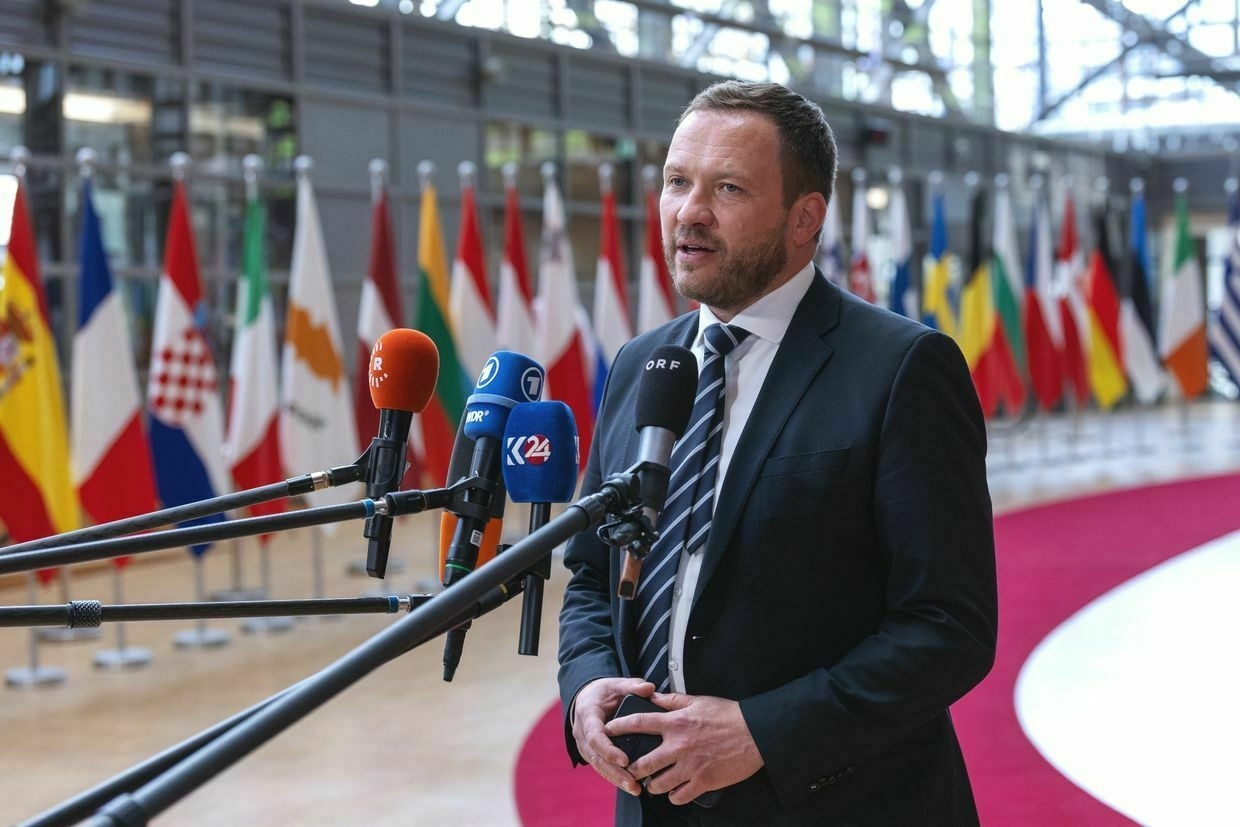
-
'Without question' — Trump says US would consider bombing Iran again, halts plans to ease sanctions
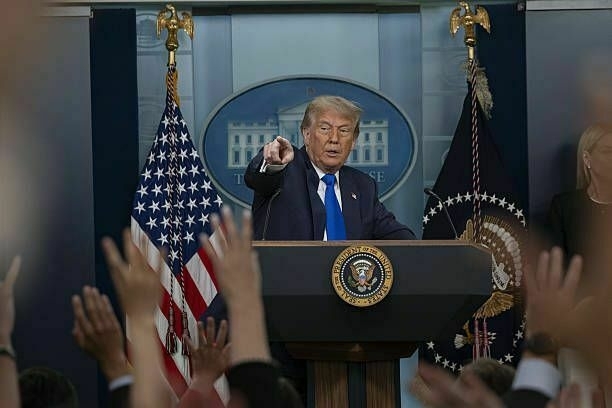
The United States would consider bombing Iran again if the country’s nuclear program once again became of concern, U.S. President Donald Trump told reporters during a press briefing on June 27.
When asked whether Trump would consider bombing Iran if the country were able to enrich uranium to a concerning level, Trump responded: “Sure. Without question, absolutely."
On June 21, the United States conducted strikes on three major Iranian nuclear sites, Fordow, Natanz, and Isfahan, dropping over a dozen bunker buster bombs on the sites and causing significant damage to the country’s nuclear program.
“Turned out to be unbelievable,” Trump said of the strikes on June 27, despite mixed reports on the success of the strikes.
A leaked U.S. Defense Intelligence Agency (DIA) assessment, reported by CNN, found that the strikes did not destroy the core of Tehran’s nuclear program. Instead, the intelligence suggests the attacks likely delayed Iran’s progress by “a few months."
Despite the leak, Trump administration officials have rebuffed reports that the strikes did not fully fulfill its object, amid reports of Iran having possibly moved its enriched uranium away from the sites.
“The objective was to eliminate enrichment in Iran… and he achieved that objective,” U.S. Special Envoy to the Middle East Steve Witkoff said on June 24, adding that he personally reviewed damage assessments and saw “no doubt” that key nuclear infrastructure was destroyed.
Trump’s comments on future attacks comes as Iran’s Supreme Leader Ayatollah Ali Khamenei downplayed the success of the strikes, claiming victory over Israel and the United States.
“I SAVED (Khamenei) FROM A VERY UGLY AND IGNOMINIOUS DEATH,” Trump wrote on Truth social on June 27, adding that he has halted plans to potentially ease sanctions on Iran. “The sanction are BITING,” Trump wrote.
“Iran has to get back into the World Order flow, or things will only get worse for them,” he added.
On June 24, Trump announced that a ceasefire between Iran and Israel had come into effect, following the U.S. strikes on Iranian nuclear facilities and a retaliatory Iranian attack on a U.S. military base in Qatar.
Ukraine war latest: Ukrainian drones reportedly strike 4 fighter jets in RussiaKey developments on June 27: * Ukraine war latest: Ukrainian drones reportedly strike 4 fighter jets in Russia * North Korea deployed 20% of Kim’s elite ‘personal reserve’ to fight against Ukraine in Russia, Umerov says * Pro-Palestinian activists reportedly destroy military equipment intended for Ukraine * Zelensky signs decree to synchronize Russia sanctionsThe Kyiv IndependentThe Kyiv Independent news desk
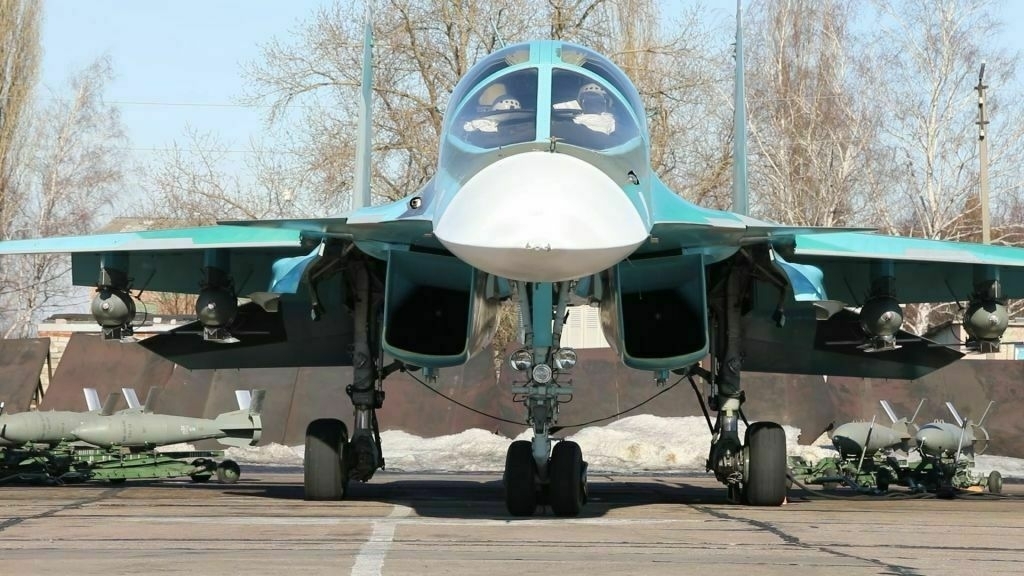
-
Orbán is once again against Ukraine
-
Russia ready to hold third round of peace talks with Ukraine, Putin says
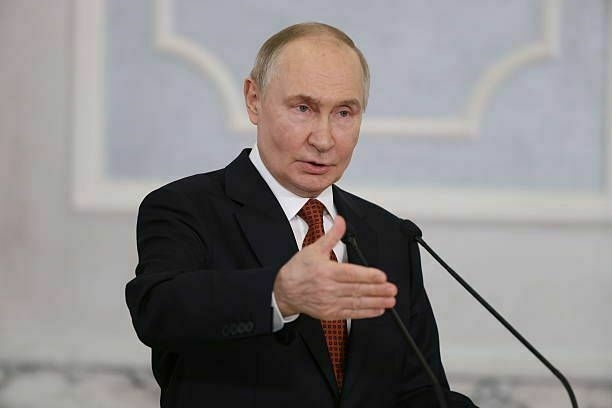
Russia is ready to hold a third round of peace talks on the war in Ukraine, Russian President Vladimir Putin told reporters on June 27, without specifying if he would directly participate in the negotiations.
“In general, we are ready for this (next round of peace talks), we need to coordinate the place and time,” Putin said.
Putin added that the talks could potentially be held in Istanbul but the details have not yet been worked out. He added that another round of talks may bring peace closer as the terms for peace outlined in the countries' peace memorandums remain “absolutely opposite."
The latest peace talks between Russia and Ukraine took place on June 2 in Istanbul, following an earlier meeting on May 16. Despite Ukraine’s insistence on a 30-day ceasefire, Russia has repeatedly rejected the offer, proposing only a temporary 2–3-day truce in limited areas to retrieve the bodies of fallen soldiers.
While no agreement on a comprehensive ceasefire has been reached, talks have led to a few major prisoner exchanges, including a 1,000-for-1,000 swap that took place in late May and a follow-up deal for up to 1,200 prisoners from each side.
Defense Minister Rustem Umerov said during a press briefing on June 26 that it was Ukraine’s goal to organize a direct meeting between President Volodymyr Zelensky and Putin during the next round of negotiation.
In previous rounds, Putin had failed to show in-person sending lower-level officials to the meeting instead — despite Zelensky’s willingness for in-person talks as well pressure from the United States.
On June 26, Turkish President Recep Tayyip Erdogan said Ankara is working to organize a meeting between Zelensky and Putin, with U.S. President Donald Trump potentially joining the talks.
Putin said on June 27 that it was “quite possible” that a meeting between himself and the U.S. president could take place. “We will be happy to prepare it,” he briefly added.
Zelensky and Trump met during the NATO summit on June 25, where the two leaders discussed battlefield developments, Kyiv’s need for additional air defense systems, and the potential for co-production of drones.
Zelensky has previously voiced openness to a trilateral meeting. On May 27, he told public broadcaster Suspilne that he was ready to sit down with both Trump and Putin.
Turkey previously hosted direct peace talks in March 2022 and has remained one of the few countries with open lines to both Kyiv and Moscow.
Putin under pressure to declare war on Ukraine, but experts say Russia isn’t readyDespite suffering over 1 million casualties, pounding Ukrainian cities nightly with missiles and drones, and committing countless war crimes, one startling fact about Russia’s full-scale invasion remains — Moscow has yet to officially declare war on Ukraine. In February 2022, Russian President Vladimir Putin described what he believed was going to be a swift victory and the capture of Kyiv within days as a “special military operation.” Nearly three-and-a-half years later, the Kremlin is stuck The Kyiv IndependentChris York
The Kyiv IndependentChris York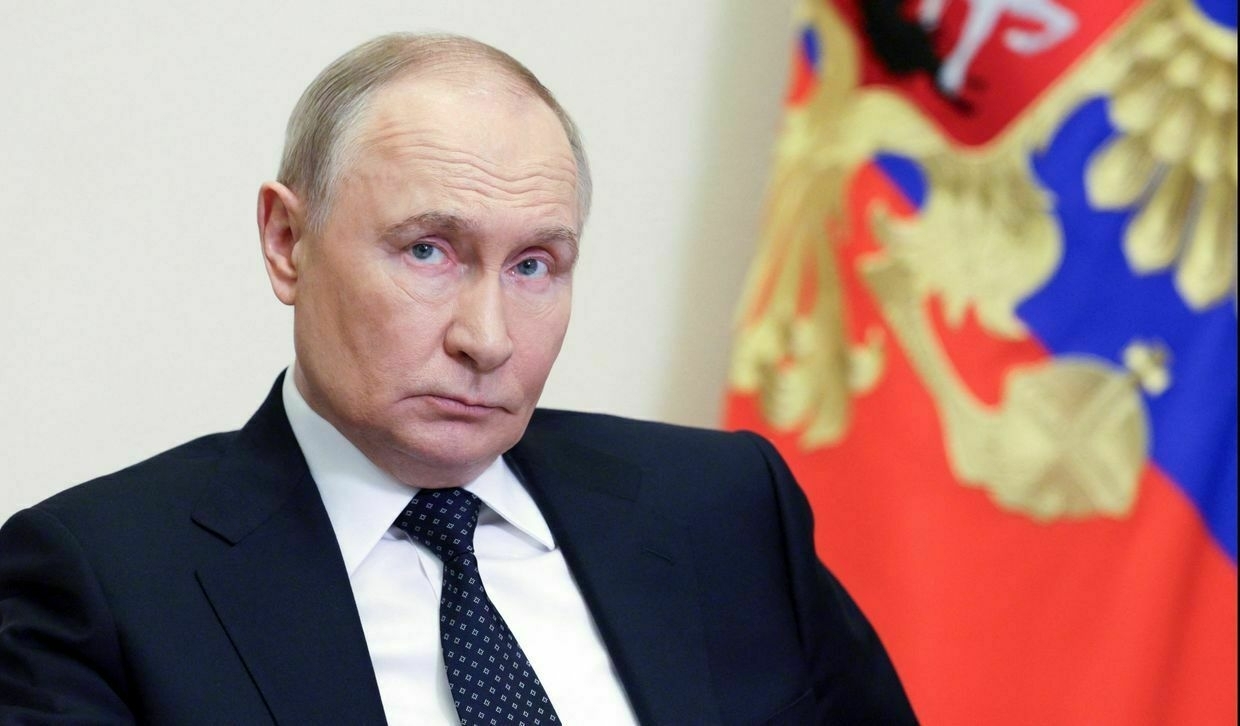
-
Ukraine war latest: Ukrainian drones reportedly strike 4 fighter jets in Russia
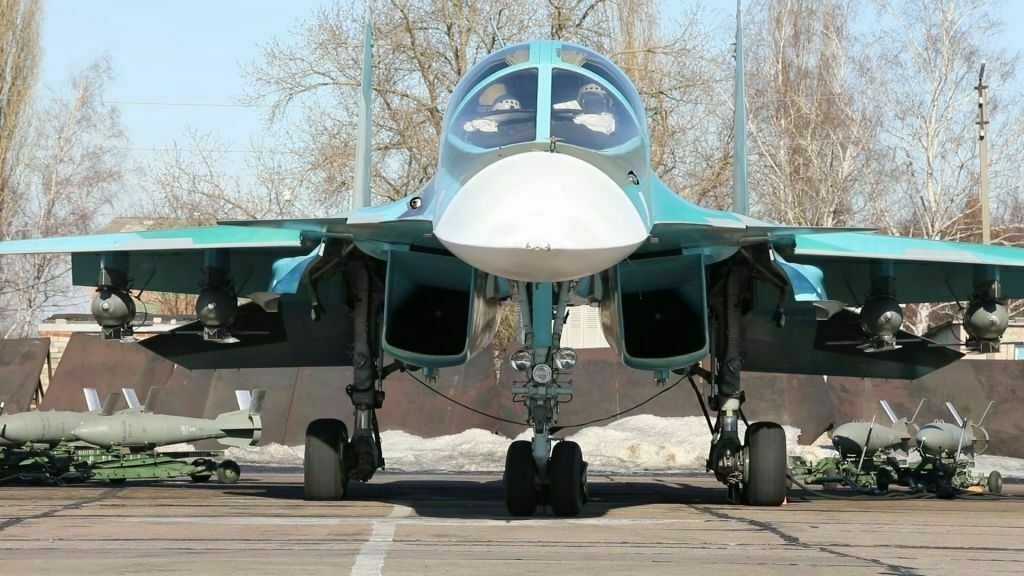
Key developments on June 27:
- Ukraine war latest: Ukrainian drones reportedly strike 4 fighter jets in Russia
- North Korea deployed 20% of Kim’s elite ‘personal reserve’ to fight against Ukraine in Russia, Umerov says
- Pro-Palestinian activists reportedly destroy military equipment intended for Ukraine
- Zelensky signs decree to synchronize Russia sanctions with EU, G7
- Russia’s short-range drone strikes cause over 3,000 civilian casualties in Ukraine, UN reports
Ukrainian drones struck four Su-34 fighter jets at the Marinovka airfield in Russia’s Volgograd Oblast overnight on June 27, Ukraine’s General Staff said.
The operation was carried out by the Special Forces and the Security Service of Ukraine (SBU) in cooperation with other military units, according to the General Staff.
Volgograd Oblast is located some 900 kilometers (560 miles) southeast of Moscow.
According to preliminary data, two Russian fighter jets were destroyed, and the other two were damaged. Russia uses such aircraft to bomb Ukraine, particularly to drop guided aerial bombs, the General Staff said.
The attack also caused a fire in the airfield’s technical and operational unit, a facility where combat aircraft are serviced and repaired, according to the General Staff.
The Kyiv Independent could not independently verify these claims.
As Russia intensifies aerial attacks on Ukraine and the civilian death toll climbs, Ukraine has stepped up its drone attacks on Russian territory. The recent surge in drone strikes aims to disrupt airport operations, overwhelm air defenses, and mount pressure against the Russian population.
Russia pulls its scientists out of Iranian nuclear plant, as Israeli strikes threaten decades of collaborationIsrael’s strikes on Iranian nuclear facilities have alarmed none more than Russia, the country that first brought nuclear power to Iran in defiance of Western objections. We’re “millimeters from catastrophe,” said Kremlin spokeswoman Maria Zakharova on June 18 in response to a bombing campaign that Israel launched against Iran on June 13. Decades of conflict with the West have united Iran and Russia, despite a cultural gulf between the two nations that dwarfs the Caspian Sea that physically di The Kyiv IndependentKollen Post
The Kyiv IndependentKollen Post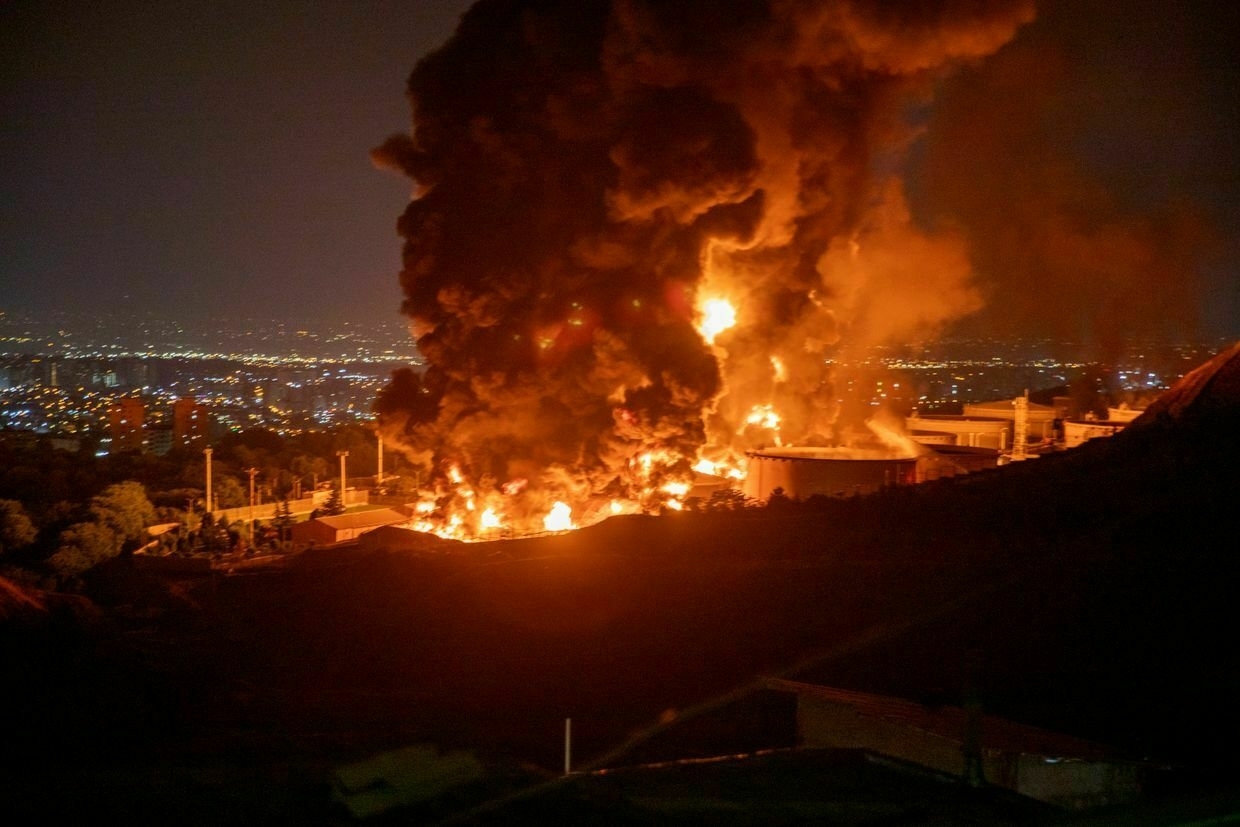
North Korea deployed 20% of Kim’s elite ‘personal reserve’ to fight against Ukraine in Russia, Umerov saysNorth Korea has already deployed around 11,000 elite troops to support Russia’s war against Ukraine, accounting for more than 20% of North Korean leader Kim Jong Un’s elite “personal reserve” force, Defense Minister Rustem Umerov said during a June 26 press briefing.
“These are soldiers specially selected based on physical, psychological, and other criteria,” Umerov said. “These units have already suffered significant losses."
Umerov said intelligence indicates North Korea had considered sending additional forces to fight with Russia. However, according to Umerov, the move would further deplete its strategic reserves and increase risks to regime stability. There have been four known rotations of North Korean units deployed against Ukraine, according to Umerov.
According to a June 15 report from the United Kingdom’s defense intelligence, North Korea has likely sustained more than 6,000 casualties in Russia since the deployment of troops to Kursk Oblast in fall 2024.
U.K. intelligence attributed the high casualty rate to large, highly attritional dismounted assaults.
Russia's growing military partnership with North Korea has raised concerns in Kyiv and among its allies. The two countries signed a Comprehensive Strategic Partnership Agreement in 2024. The treaty commits both countries to provide assistance if either is attacked.
Kim previously described the pact as having a "peaceful and defensive nature," framing it as a formal security guarantee between the longtime partners.
In practice, Umerov said, North Korea is bearing the military burden, while Russia has not upheld its reciprocal obligations, raising concerns within the North Korean regime.
"Russia's use of elite North Korean troops demonstrates not only a growing reliance on totalitarian regimes but also serious problems with its mobilization reserve," Umerov said. "Together with our partners, we are monitoring these threats and will respond accordingly."
Umerov added that Ukraine, working in coordination with its Western partners, is closely tracking the movement and deployment of North Korean units deployed to fight against Ukraine. He said Russia's dependence on foreign forces may signal critical shortages in its own recruitment and mobilization efforts.
According to South Korea's National Intelligence Service, North Korea is likely to send more troops to Russia over the summer. Pyongyang may also send up to 25,000 laborers to Russia to support drone production, according to the report.
The additional troop deployment would come on top of what Seoul estimates is already substantial support from North Korea, which includes the shipment of over 10 million artillery shells and ballistic missiles in exchange for economic and technical assistance from Moscow.
Tired of military aid delays, Ukraine has designed its own ballistic missile — and it’s already in mass-productionUkraine announced on June 13 that its short-range Sapsan ballistic missile would go into mass production, a major development in Kyiv’s ongoing efforts to domestically produce the weapons it needs to fight Russia’s full-scale invasion. As Ukraine faces growing challenges in securing weapons from Western partners, and Russia continues launchingThe Kyiv IndependentYuliia Taradiuk
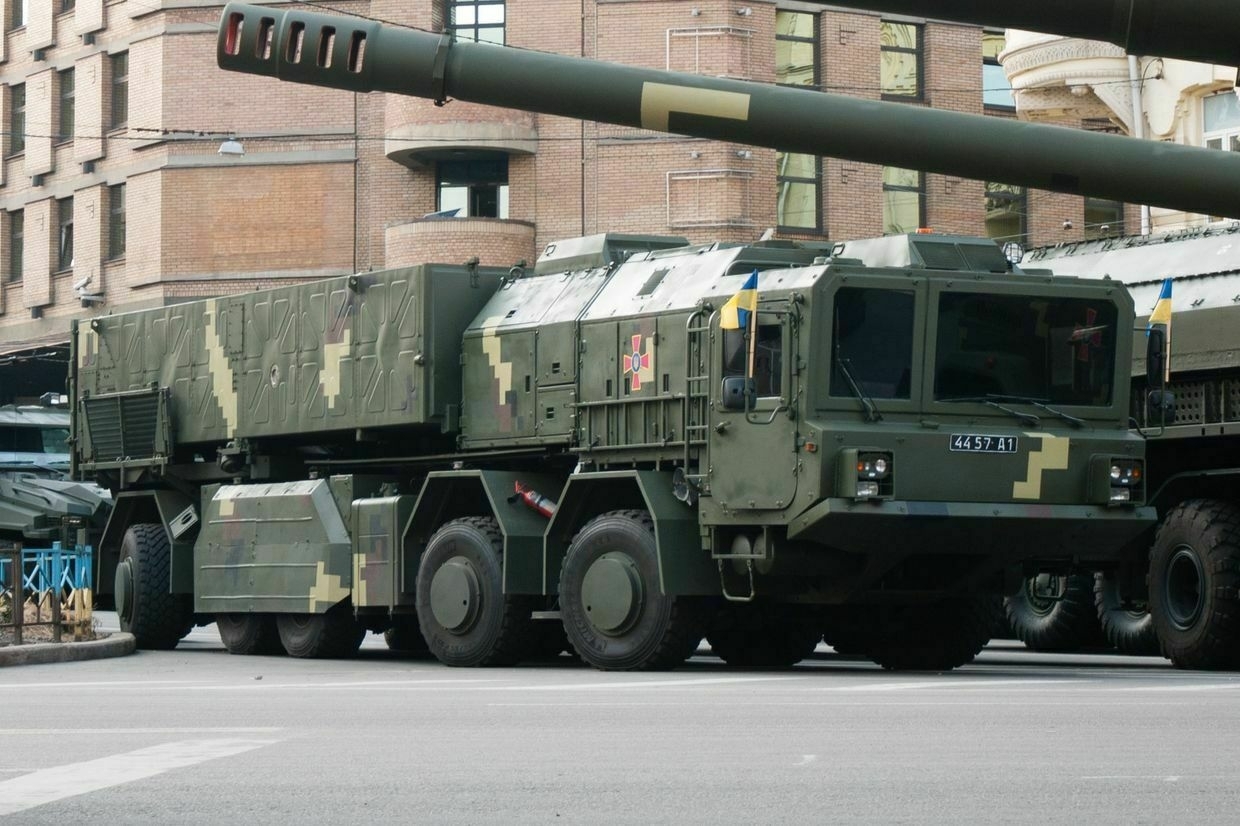
Pro-Palestinian activists reportedly destroy military equipment intended for UkraineAround 150 pro-Palestinian activists have broken into a storage facility and damaged military equipment intended for Ukraine, the Belgian news outlet 7sur7 reported on June 26.
The facility belongs to OIP Land Systems, a company that produces military equipment for Ukraine. The activists reportedly thought the equipment would be supplied to Israel.
The activists, who were wearing white overalls and masks, took part in the Stop Arming Israel campaign. The protests seek to pressure Belgian authorities to maintain the military embargo against Israel and impose sanctions on it.
The protesters, armed with hammers and grinders, first entered the company's offices, where they smashed computers, and then broke into the hangars, where they severely damaged some vehicles, Freddy Versluys, CEO of OIP Land Systems, said.
Since the beginning of the Russian invasion, the company has supplied the Ukrainian army with about 260 armored vehicles. The damage caused by the activists' actions is estimated at $1.1 million, according to 7sur7.
"A further delivery has now been delayed by at least a month. That's all these Hamas sympathizers will have achieved with their action," Versluys said.
The company was reportedly targeted by pro-Palestinian protesters because Elbit Systems, an Israeli defense company, owns it.
Protesters believe that Elbit supplies 85% of the drones and most of the ground military equipment used by the Israel Defense Forces, 7sur7 reported.
Yet, the OIP Land Systems CEO claimed that his company has not produced defense systems for Israel for over 20 years.
OIP Land Systems has provided defense products to Ukraine on several occasions, including Leopard 1 tanks, which are manufactured at the Tournai plant.
Zelensky signs decree to synchronize Russia sanctions with EU, G7President Volodymyr Zelensky signed a decree on June 27 to coordinate sanctions against Russia with international partners, particularly the European Union and the Group of Seven (G7), the President's Office said on its website.
A day earlier, EU member states' leaders gave their political consent to extend the sanctions previously imposed on Russia for its war against Ukraine.
The EU Committee of Permanent Representatives (CORPER) also extended sectoral sanctions against Russia for another six months on June 26, European Pravda reported, citing a diplomatic source. The sanctions include restrictions against entire sectors or industries of the Russian economy or areas of operation of Russian businesses.
Meanwhile, the participants did not approve the new 18th package of sanctions, which targeted Russia's energy and banking sectors, due to Slovakia's veto.
Zelensky's June 27 decree implements a decision by Ukraine's National Security and Defense Council's (NSDC) to synchronize the sanctions against Russia with the EU and G7.
According to the document, sanctions approved by partner states must be submitted to the NSDC for consideration and approval no later than the 15th day after the partner state's decision comes into force.
The Cabinet of Ministers, the Security Service of Ukraine (SBU), and the National Bank of Ukraine must also ensure the implementation of sanctions approved by international partners in Ukraine.
After the 17th package of sanctions against Russia took effect on May 20, Ukraine's allies announced the following day that another round of restrictions was already in the works.
The push for tighter sanctions comes as Russia continues to reject ceasefire proposals and presses forward with military operations.
Russia's short-range drone strikes cause over 3,000 civilian casualties in Ukraine, UN reportsShort-range drone attacks have become one of the deadliest threats to civilians in Ukraine’s front-line regions, killing at least 395 people and injuring 2,635 between February 2022 and April 2025, according to a new bulletin by the UN Human Rights Monitoring Mission in Ukraine.
The report, "Deadly Drones: Civilians at Risk from Short-Range Drones in Frontline Areas of Ukraine," highlights the growing use of first-person-view (FPV) drones by Russian forces and their devastating impact on the civilian population.
The bulletin documents attacks in which drone operators deliberately targeted civilians engaging in daily activities — driving private cars, riding bicycles, walking outdoors, or evacuating others in clearly marked ambulances.
"Although individually less destructive than artillery or missiles, the sheer scale and increasing frequency of short-range drone attacks have made them one of the deadliest weapons in Ukraine," said Danielle Bell, head of the mission.
"Over 3,000 civilian casualties — and the relentless frequency of these attacks — have not only caused immense human suffering but also instilled fear, severely disrupted daily life, and crippled access to essential services in several frontline communities."
The monitoring mission documented, verified, and analyzed 3,030 civilian casualties resulting from short-range drones between 24 February 2022 and 30 April 2025.
The researchers conducted site visits to very high-risk areas, including the southern city of Kherson, Zolochiv in Kharkiv Oblast, and other front-line locations. Investigators interviewed survivors and witnesses of drone attacks, medical personnel, and humanitarian workers to assess the full impact of these strikes on civilian life.
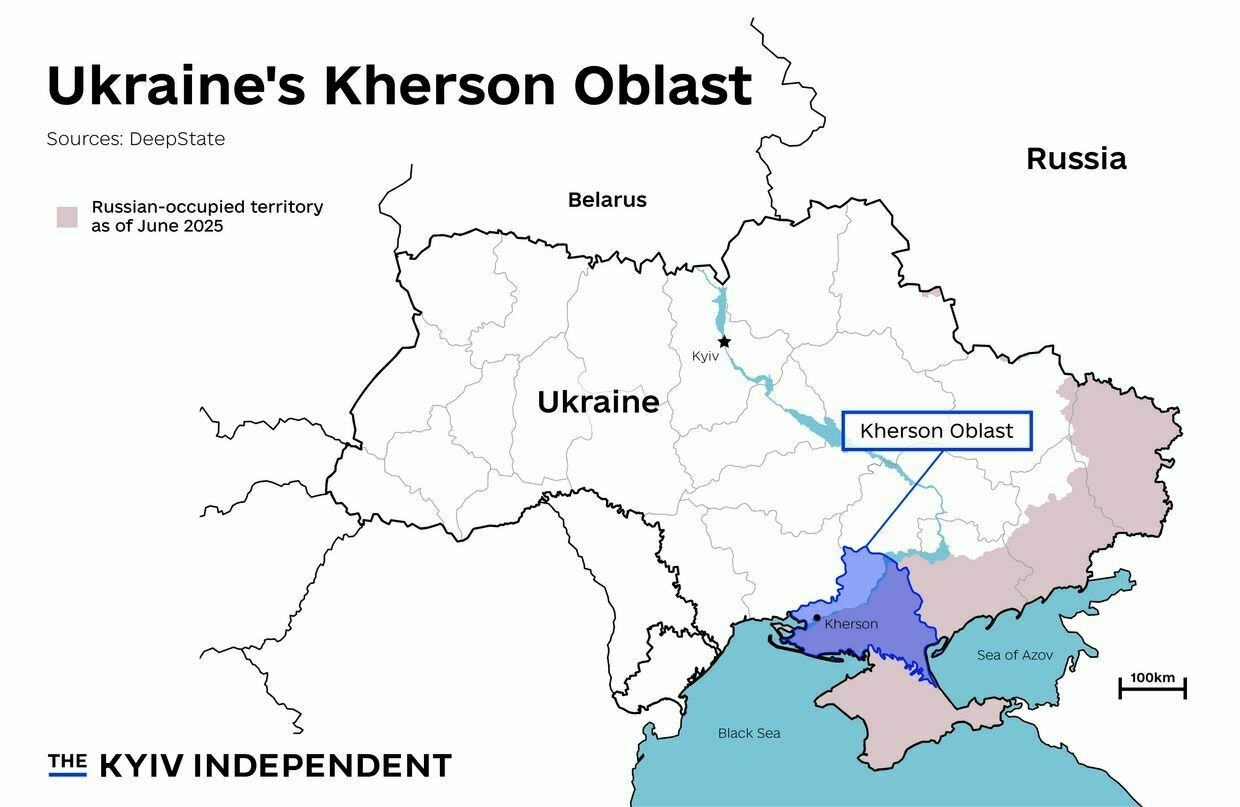
Ukraine's Kherson Oblast (Nizar al-Rifai/The Kyiv Independent) Casualties surged in late 2023 and early 2024, with numbers suddenly doubling in July 2024. April 2025 marked the deadliest month on record, with 42 civilians killed and 283 injured. Drone strikes continued into May and June.
On 23 June, a 65-year-old driver was killed in Kostiantynivka, Donetsk Oblast, when a drone struck a minibus. In Kharkiv region, a 58-year-old volunteer was killed on 22 May when a drone dropped a munition on a residential balcony. On 20 May, six civilians were injured when a drone hit a bus in Kherson Oblast.
The vast majority of casualties — 89% — occurred in territory controlled by the Ukrainian government. The UN says these attacks violate international humanitarian law, particularly the principles of distinction and precaution, and may in some cases constitute war crimes.
Note from the author:
Ukraine War Latest is put together by the Kyiv Independent news desk team, who keep you informed 24 hours a day, seven days a week. If you value our work and want to ensure we have the resources to continue, join the Kyiv Independent community.
-
Ukrainian manufacturers able to produce 4 million drones per year, Umerov says
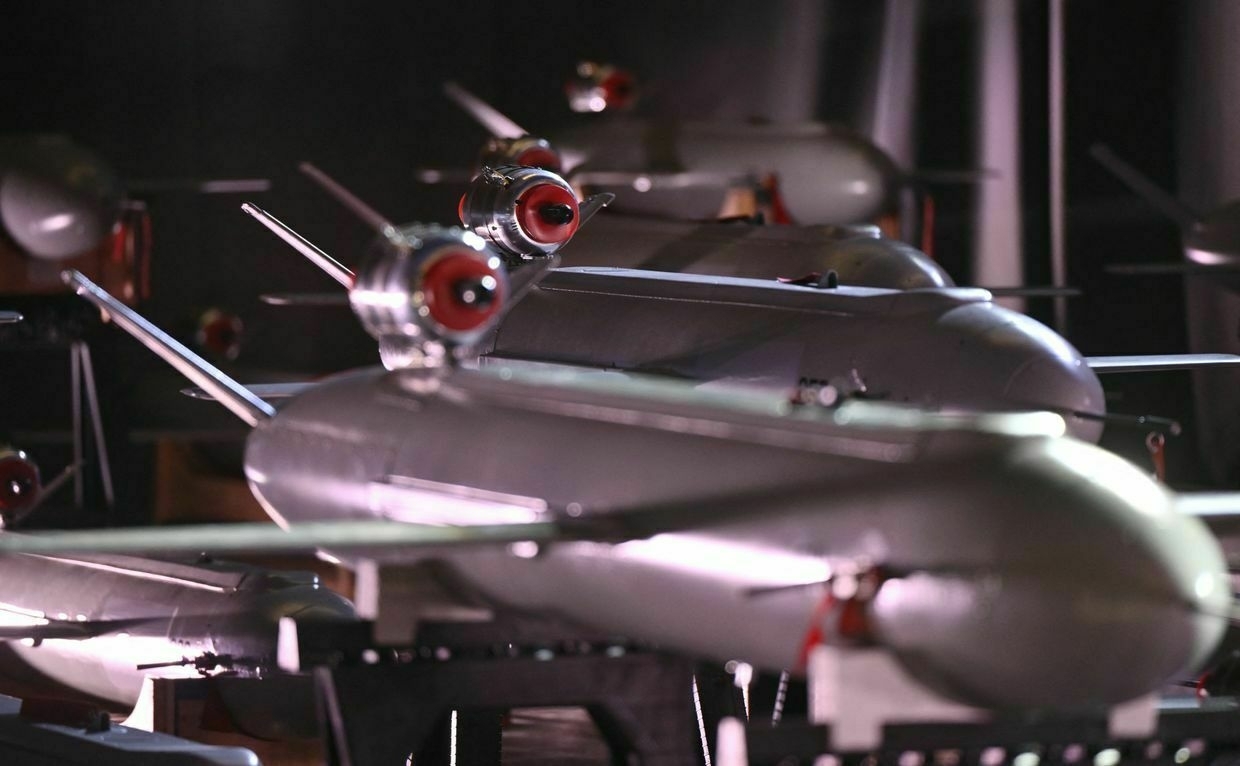
Ukrainian companies have increased their industrial capacity to produce four million drones a year, Defense Minister Rustem Umerov said at a June 26 press briefing.
The statement comes as Ukraine seeks to increase domestic arms production amid uncertainty over further U.S. support and reduced dependence on supplies from European partners.
Ukrainian manufacturers will supply four million drones to the front line this year, while the Ukrainian army has already received up to 1.5 million drones as of the end of June, according to Umerov.
The minister said that brigades made many requests for direct funding last year, with a commitment secured for 2025. The government is currently allocating Hr 2.5 billion ($60 million) per month for direct procurement teams, he added.
In the meantime, Umerov said that not all brigades spend money due to a lack of procurement specialists, so the Defense Procurement Agency (DPA) launched the DOT Chain Defense marketplace for Ukrainian soldiers
“The teams see a ‘marketplace’ of drones: each team orders what it needs, and the healthcare organization pays for it. This way we significantly reduce all the bureaucracy, and the teams get what they need ten times faster,” Umerov said.
Russian drone strikes across Ukraine have been breaking records in recent weeks, with nearly 500 drones and missiles launched overnights.
Since the start of Russia’s full-scale invasion, Ukraine has focused heavily on developing and deploying advanced unmanned systems. As of April 2025, more than 95% of drones used by Ukrainian forces on the front line are domestically produced.
Both Ukraine and Russia have increasingly relied on drone warfare, employing aerial, naval, and ground-based drones for reconnaissance and combat operations – making technological innovation a critical component of the war.
Russia pulls its scientists out of Iranian nuclear plant, as Israeli strikes threaten decades of collaborationIsrael’s strikes on Iranian nuclear facilities have alarmed none more than Russia, the country that first brought nuclear power to Iran in defiance of Western objections. We’re “millimeters from catastrophe,” said Kremlin spokeswoman Maria Zakharova on June 18 in response to a bombing campaign that Israel launched against Iran on June 13. Decades of conflict with the West have united Iran and Russia, despite a cultural gulf between the two nations that dwarfs the Caspian Sea that physically di The Kyiv IndependentKollen Post
The Kyiv IndependentKollen Post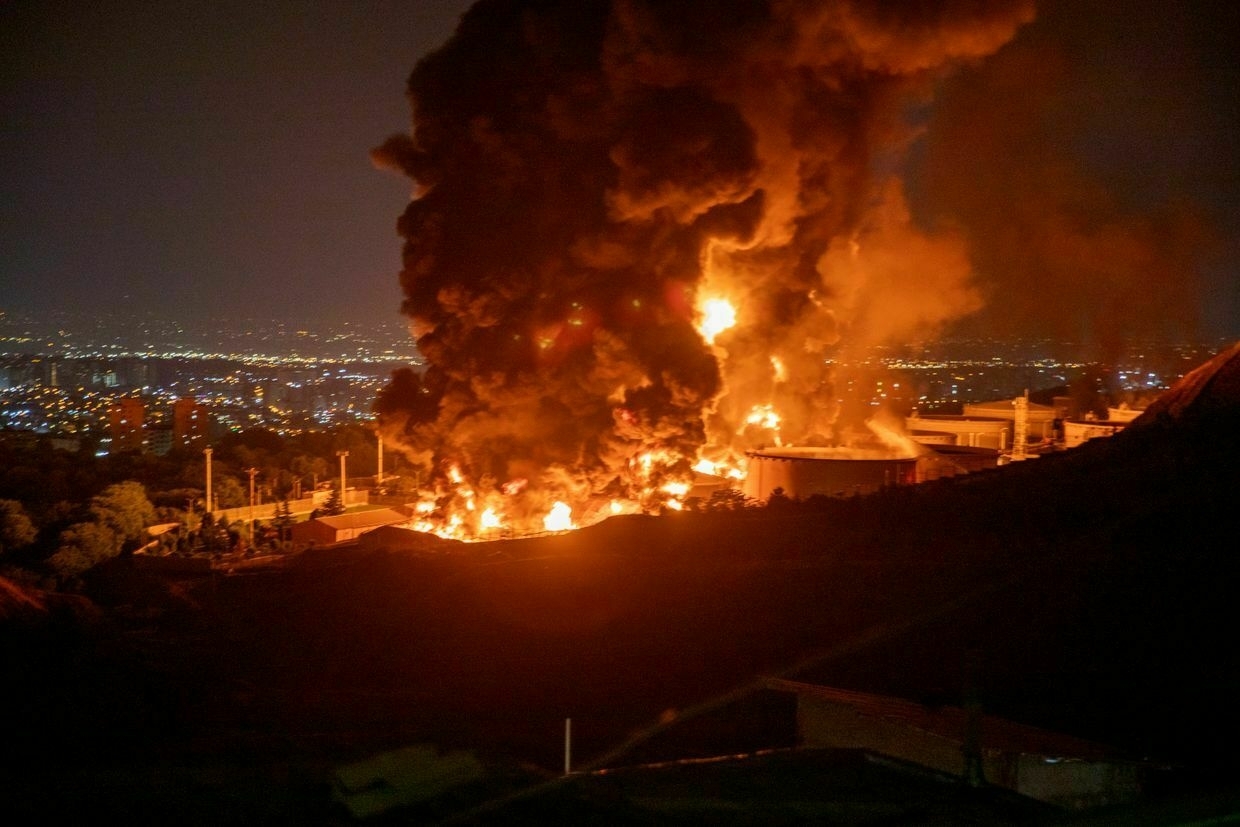
-
Ukrainian drones strike 4 fighter jets in Russia's Volgograd Oblast, General Staff says
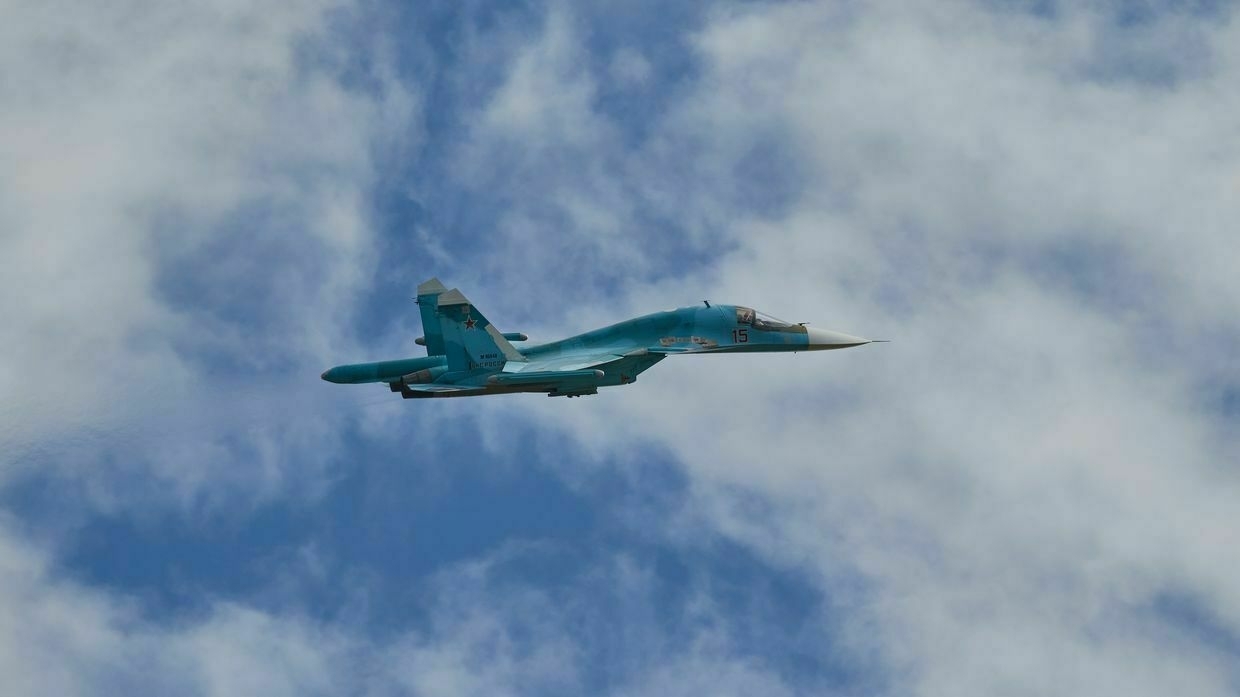
Ukrainian drones struck four Su-34 fighter jets at the Marinovka airfield in Russia’s Volgograd Oblast overnight on June 27, Ukraine’s General Staff said.
The operation was carried out by the Special Forces and the Security Service of Ukraine (SBU) in cooperation with other military units, according to the General Staff.
Volgograd Oblast is located some 900 kilometers (560 miles) southeast of Moscow.
According to preliminary data, two Russian fighter jets were destroyed, and the other two were damaged. Russia uses such aircraft to bomb Ukraine, particularly to drop guided aerial bombs, the General Staff said.
The attack also caused a fire in the airfield’s technical and operational unit, a facility where combat aircraft are serviced and repaired, according to the General Staff.
The Kyiv Independent could not independently verify these claims.
As Russia intensifies aerial attacks on Ukraine and the civilian death toll climbs, Ukraine has stepped up its drone attacks on Russian territory. The recent surge in drone strikes aims to disrupt airport operations, overwhelm air defenses, and mount pressure against the Russian population.
Russia pulls its scientists out of Iranian nuclear plant, as Israeli strikes threaten decades of collaborationIsrael’s strikes on Iranian nuclear facilities have alarmed none more than Russia, the country that first brought nuclear power to Iran in defiance of Western objections. We’re “millimeters from catastrophe,” said Kremlin spokeswoman Maria Zakharova on June 18 in response to a bombing campaign that Israel launched against Iran on June 13. Decades of conflict with the West have united Iran and Russia, despite a cultural gulf between the two nations that dwarfs the Caspian Sea that physically di The Kyiv IndependentKollen Post
The Kyiv IndependentKollen Post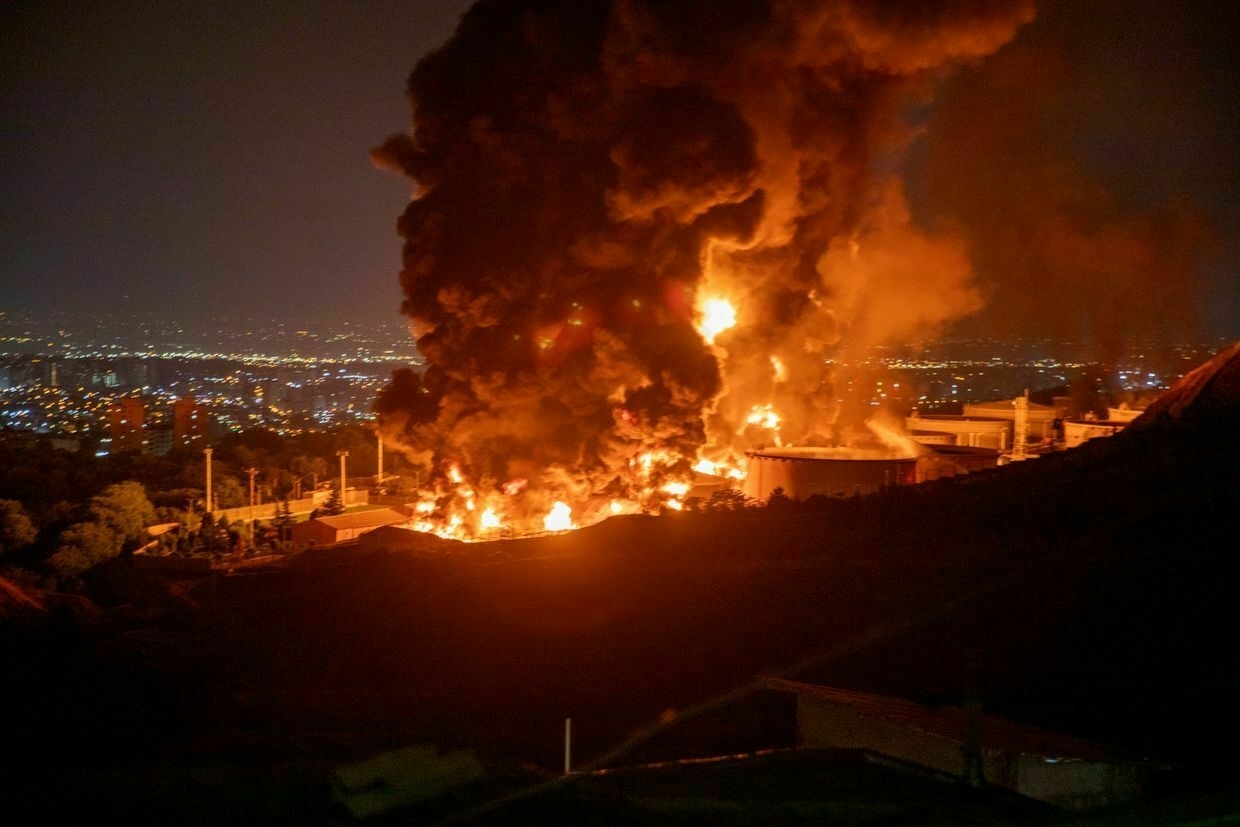
-
Orban's referendum FAILED, Ukraine ramps up drone production, North Korea sends more troops to war
-
Ukrainian deputy prime minister hit with travel ban, $2.9 million bail in major corruption case
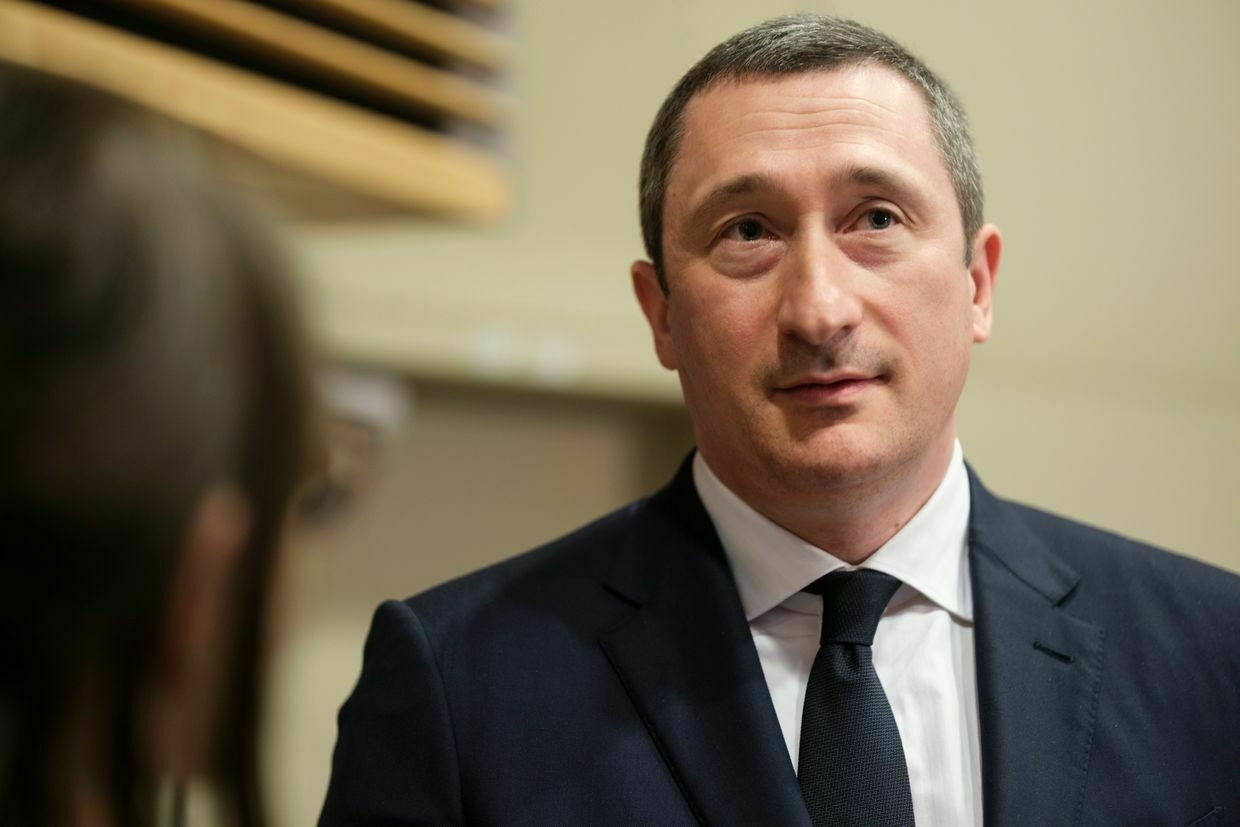
Deputy Prime Minister of Ukraine Oleksii Chernyshov was restricted from traveling abroad without permission after a court ruled on June 27 to set bail at Hr 120 million ($2.9 million) while awaiting trial in a high-profile corruption case.
“This is a huge challenge for me,” Chernyshov told reporters during a press briefing after the hearing, adding that he believed the bail was “too high.”
Chernyshov is the highest-ranking official in Ukraine’s history to face corruption charges while in office. Courts officially named him a suspect earlier this week for abusing his government post to illegally enrich himself through a “large-scale” illegal land grab.
Chernyshov has categorically denied the allegations.
According to the National Anti-Corruption Bureau (NABU) investigation, during his time as communities and territories minister in 2020-2022, Chernyshov and his associates undervalued land plots to benefit a developer in exchange for kickbacks. Chernyshov and his accomplices allegedly received “significant” discounts on apartments in existing buildings, totaling over Hr 14.5 million ($346,000), from the developer. The actions cost Ukraine Hr 1 billion ($24 million), according to NABU.
“I am personally convinced that the accusation has no objective grounds,” Chernyshov said during the hearing at the High Anti-Corruption Court. “The events we are talking about today took place more than three years ago,” he said, adding that he had not been summoned for any procedural hearings during this period.
The case’s significance goes beyond the monetary value, marking a major accusation against a member of President Volodymyr Zelensky’s inner circle. Chernyshov is widely considered a close ally of Zelensky.
“The key thing is that today NABU and SAPO have actually reached the immediate circle of the president’s ‘family,'” Olena Shcherban, deputy executive director at the Anti-Corruption Action Center (ANTAC), a Kyiv-based watchdog, told the Kyiv Independent earlier this week.
Addressing reporters ahead of the hearing, Chernyshov said, “I am confident, confident in my decisions and I will prove them.” He appeared in upbeat spirits on footage from inside the courtroom, despite the court denying his and his team’s request to bar media access in the courtroom. During his initial remarks to reporters, he told the media to focus on “just the facts.”
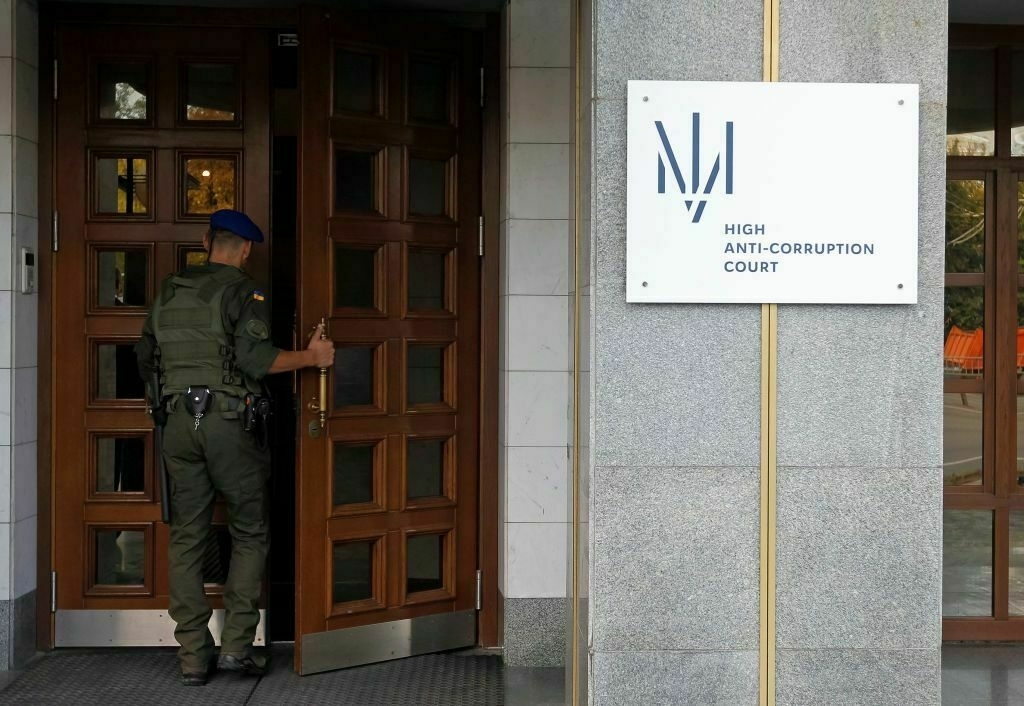
A view of Ukraine’s High Anti-Corruption Court (HACC) building in Kyiv, Ukraine, on Sept. 5, 2019. (STR/NurPhoto via Getty Images) Chernyshov left the country only days before law enforcement unveiled charges and arrested two of his close associates, sparking suspicions that he had fled Ukraine to avoid arrest. He returned on June 22 and denied that he had been on the run, saying that he had been traveling for business. Zelensky publicly backed up his assertion.
Chernyshov was summoned to NABU the following day and wrote on Facebook after the meeting that he planned to cooperate with the investigative body.
During the court hearing, NABU and the Specialized Anti-Corruption Prosecutor’s Office (SAPO) requested that Chernyshov be suspended from office and that the court set bail of Hr 120 million ($2.9 million). The two offices also requested additional measures restricting his movements, including that he hand in his passport and wear an electronic monitoring device.
The court granted the prosecutors’ request for bail and banned him from leaving the country without permission, but did not remove him from office.
In court, Chernyshov said that he had no intention to flee and that his reputation was at stake. He repeated his statement earlier this week that he had no intention of resigning from his post.
Since December last year, Chernyshov has also headed the newly formed National Unity Ministry, which aims to strengthen ties with the Ukrainian diaspora and non-governmental organizations overseas.
Note from the author:
This is Andrea Januta, I hope you enjoyed our piece. Our team strives to keep you informed on the latest news from Ukraine. We wouldn’t be able to do so without the support of readers like you. To help us continue in this work, please consider becoming a member of the Kyiv Independent’s community.
Putin under pressure to declare war on Ukraine, but experts say Russia isn’t readyDespite suffering over 1 million casualties, pounding Ukrainian cities nightly with missiles and drones, and committing countless war crimes, one startling fact about Russia’s full-scale invasion remains — Moscow has yet to officially declare war on Ukraine. In February 2022, Russian President Vladimir Putin described what he believed was going to be a swift victory and the capture of Kyiv within days as a “special military operation.” Nearly three-and-a-half years later, the Kremlin is stuck The Kyiv IndependentChris York
The Kyiv IndependentChris York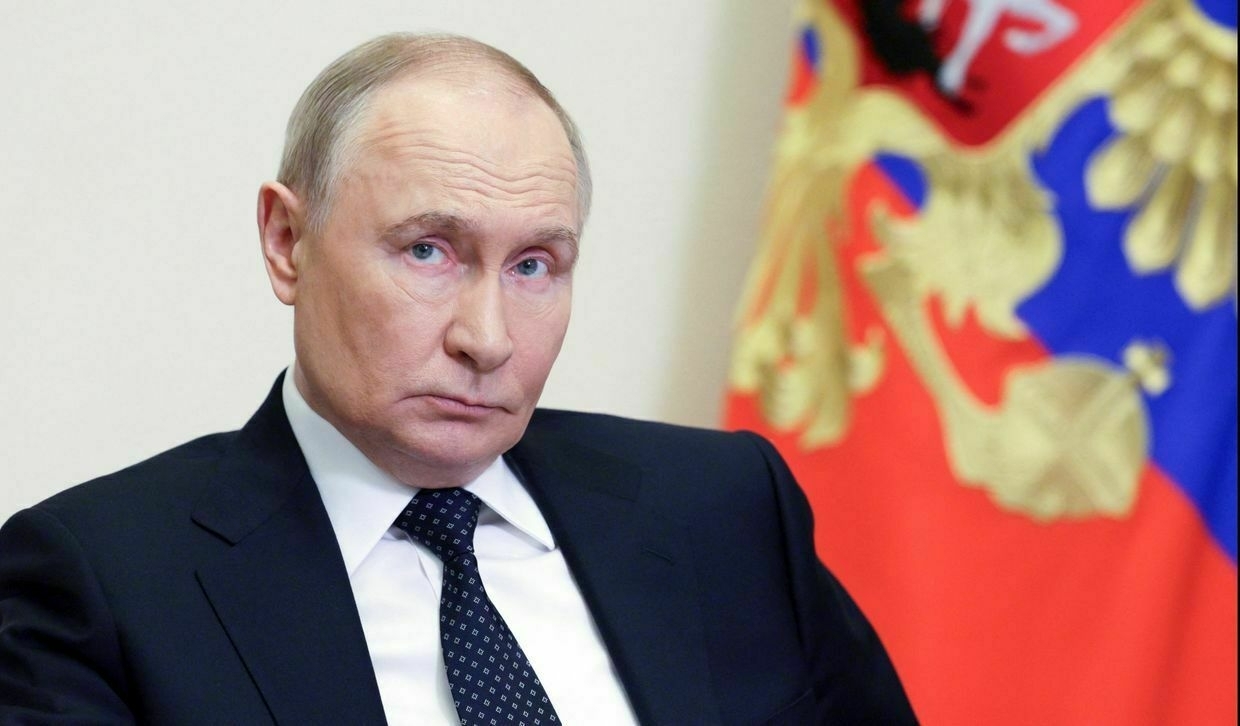
-
EU fails to adopt new Russia sanctions due to Hungarian, Slovak opposition
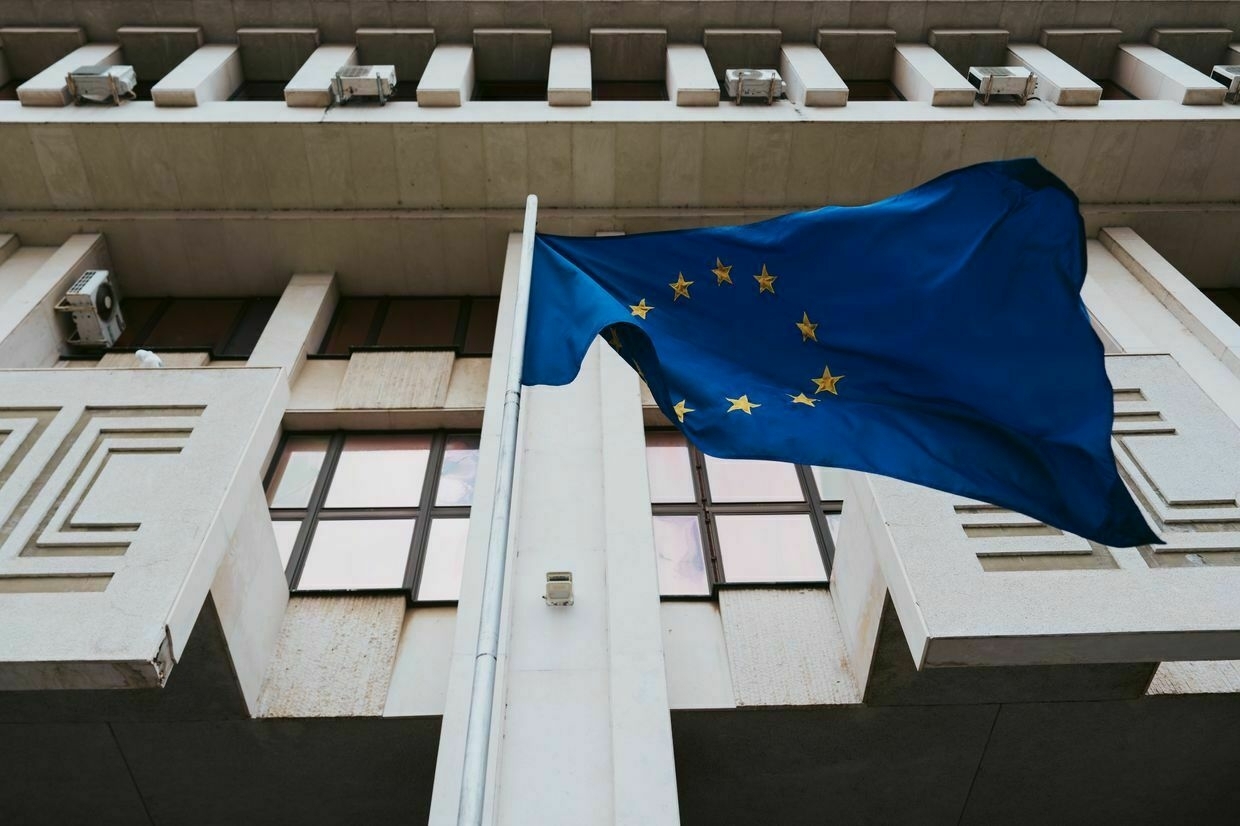
EU ambassadors have failed to approve the 18th package of sanctions against Russia due to opposition from Hungary and Slovakia, the news outlet Suspilne reported on June 27, citing an unnamed diplomatic source.
After the 17th package of sanctions against Russia took effect on May 20, Ukraine’s allies announced the following day that another round of restrictions was already in the works. Meanwhile, officials in Hungary and Slovakia protested against the approval of new restrictions against Russia.
Unlike Hungarian Prime Minister Viktor Orban, who has consistently opposed sanctions against Russia, Slovakia has not previously attempted to block EU sanctions.
“No agreement was reached. Ambassadors will return to this issue after two reservations are removed,” the source told Suspilne in a reference to the position of Slovakia and Hungary.
The ambassadors also agreed to extend sectoral sanctions against Russia for six months. These sanctions encompass a broad array of economic areas, including restrictions on trade, finance, technology and dual-use goods, industry, transport, and luxury goods.
In June, the European Commission presented the 18th package of sanctions, which includes new restrictions against the Russian energy and banking sectors and transactions related to the Nord Stream gas pipeline project.
Ukraine’s European allies are tightening sanctions against Russia as Moscow refuses to accept a ceasefire. Despite Russia’s refusal, no new U.S. sanctions have been imposed so far.
Warfare in Ukraine has changed… againThe Kyiv Independent’s Francis Farrell explains a new modification of the standard first-person view (FPV) drone that already once transformed the way war is fought. Fiber optic cable now used to connect drone operators to FPVs ensures a perfect image and control experience all the way to the target — and cannot be spotted by enemy drone detectors.The Kyiv IndependentFrancis Farrell

-
Ukraine’s new top prosecutor known for high-profile cases, seen as Zelensky loyalist
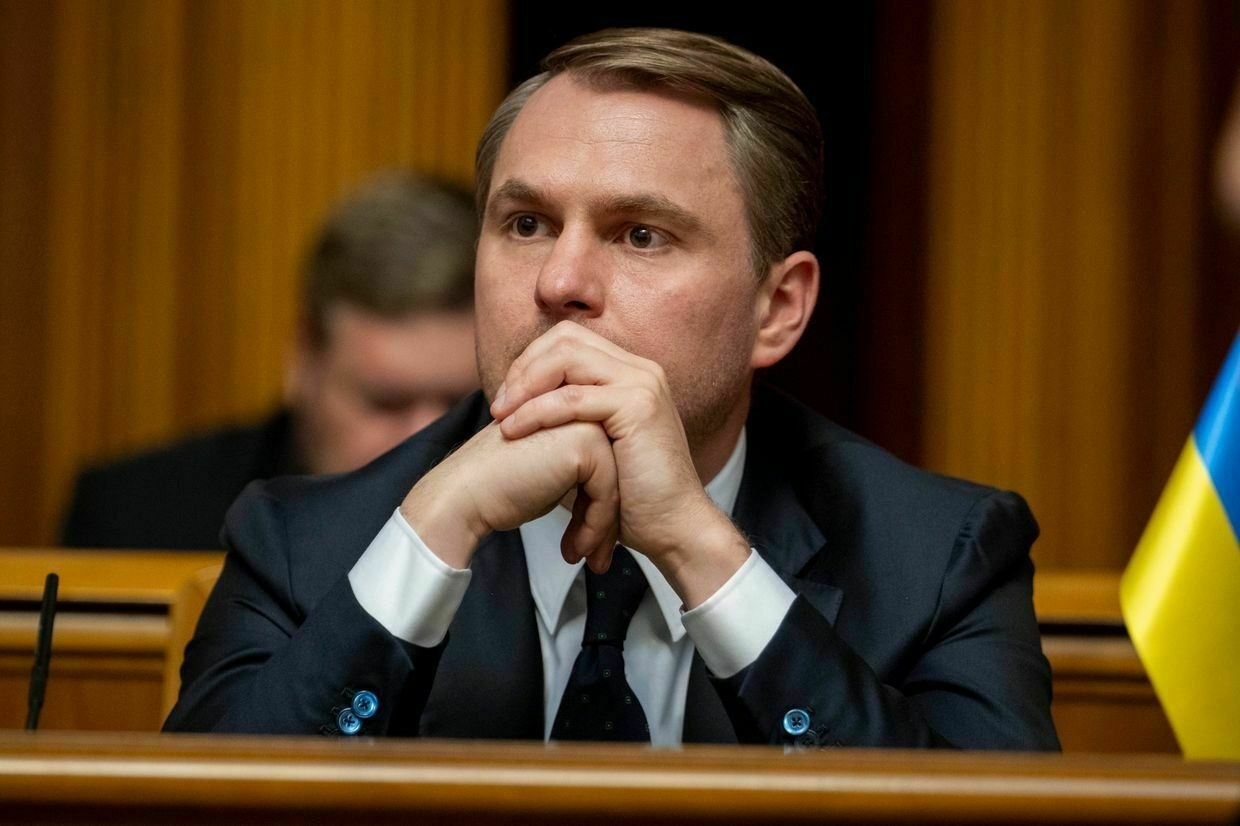
Loyalty to the incumbent administration has been the key requirement for prosecutor generals in Ukraine.
Ruslan Kravchenko, who was appointed as prosecutor general on June 21, appears to be no exception.
Previously he had been appointed as a military governor by President Volodymyr Zelensky and is seen as a presidential loyalist.
Kravchenko became Ukraine’s top prosecutor after a lengthy hiatus during which the position of prosecutor general remained vacant.
His predecessor, Andriy Kostin, resigned in October 2024. Kostin’s deputy, Oleksiy Khomenko, served as acting prosecutor general in the interim.
Kravchenko, who also has a background as a military prosecutor and has prosecuted the Russian war crimes in Bucha, was seen by the authorities as an appropriate candidate for the prosecutor general job in wartime.
Many in civil society disagree. Activists and experts have called for appointing an independent and apolitical prosecutor general capable of delivering impartial justice.
To ensure this, they propose appointing the prosecutor general with the participation of international experts, similarly to how it is done in some other law enforcement and anti-corruption agencies.
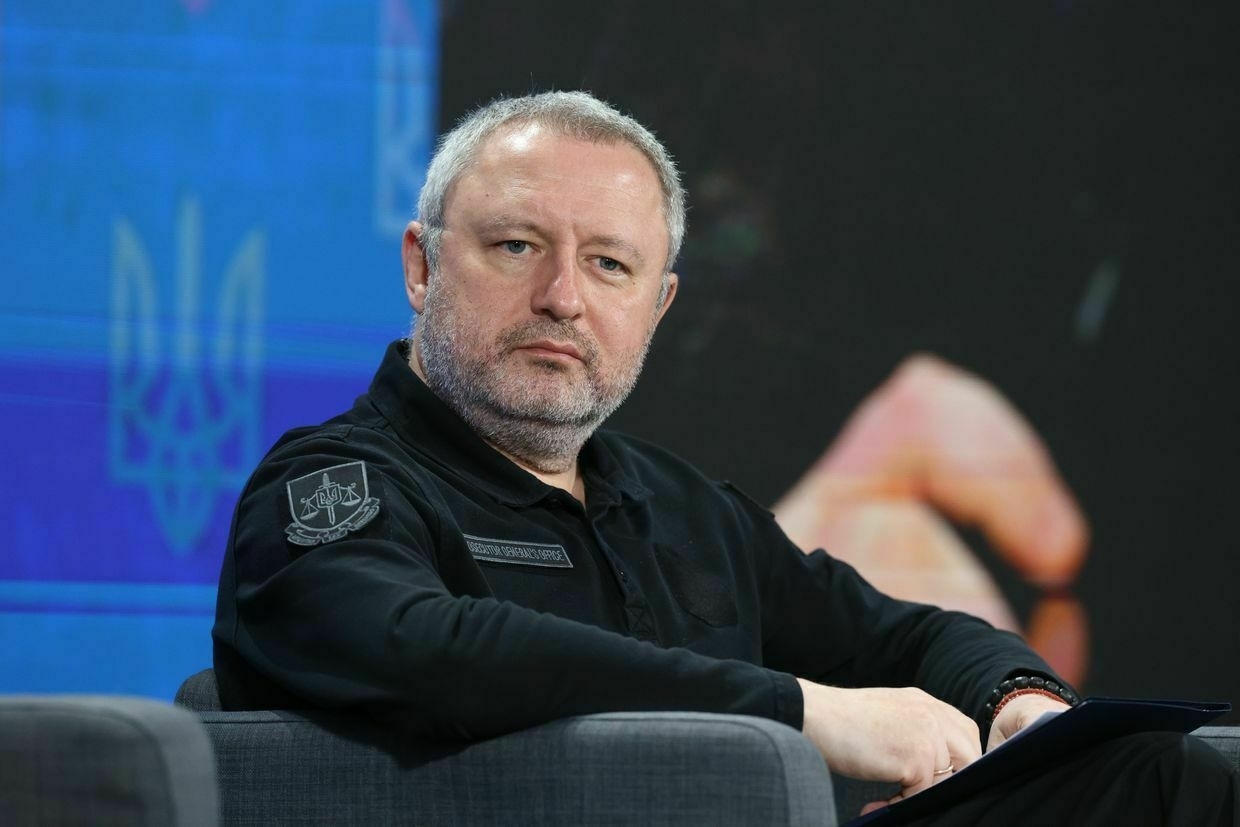
Andriy Kostin, former prosecutor general of Ukraine, takes part in a forum with heads of state institutions in Kyiv, Ukraine, on Aug. 27, 2024. (Viktor Kovalchuk / Global Images Ukraine via Getty Images) Currently, the prosecutor general is nominated by the president and approved by parliament, where President Volodymyr Zelensky’s party holds the majority.
Some argue that this sets any prosecutor general up for failure.
“As long as the current (appointment) procedure is kept, any prosecutor general will be dependent,” Yaroslav Yurchyshyn, a member of parliament from the Holos opposition party, told the Kyiv Independent. “Are there grounds for believing that (Kravchenko) could be effective and professional? Yes. But won’t this be offset by his political dependence?"
The Prosecutor General’s Office told the Kyiv Independent that statements on Kravchenko’s dependence on the Zelensky administration are “speculative, baseless and not supported by any facts."
Another issue is that Kravchenko was deemed not to meet ethics and integrity standards during earlier contests for law enforcement jobs. This is why some anti-corruption activists believe he is not fit to be prosecutor general either.
Commenting on the accusations, the Prosecutor General’s Office told the Kyiv Independent that Kravchenko received the highest scores in tests for legal knowledge, analytical thinking and practical skills during the 2022 contest for the job of the National Anti-Corruption Bureau’s head.
“His activities have always been based on the principles of professionalism, impartiality, legality and responsibility,” the prosecutor’s office added.
Experts interviewed by the Kyiv Independent provided different assessments of Kravchenko.
Daria Kaleniuk, executive director of the Anti-Corruption Action Center, argued that she does not trust Kravchenko and described his career path as “questionable.” Kaleniuk was on the vetting panel that rejected Kravchenko’s candidacy for an anti-corruption prosecutor job in 2020 over integrity concerns.
Yaroslav Zhelezniak, a member of parliament from the liberal Holos party and a frequent critic of the authorities, was more upbeat. He said that Kravchenko was the best among the candidates for prosecutor general being considered by the President’s Office.
“He does have management skills,” Oleksandr Lemenov, head of the anti-corruption watchdog StateWatch, told the Kyiv Independent, based on what he heard from people who had worked with Kravchenko. “Whether (his skills) will be enough for the position of prosecutor general — only time will tell."
With Trump disengaged and EU complacent, Ukrainian reforms lose momentumRussia’s all-out war has accelerated Ukraine’s push to join the European Union and NATO, as well as its dependency on Western loans and aid. Before, these things would have been heavily preconditioned on Ukraine implementing crucial reforms. However, the war has also eased the pressure on Kyiv to carry outThe Kyiv IndependentOleg Sukhov
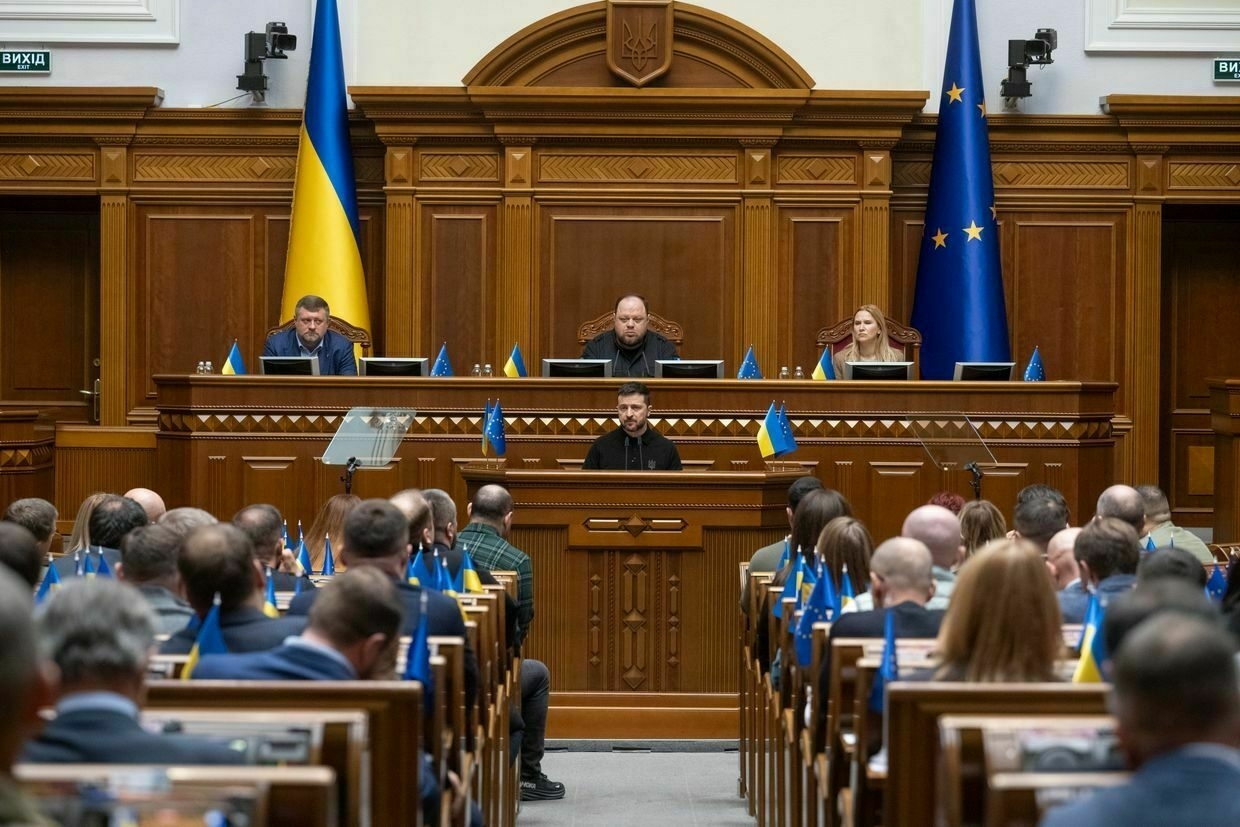
Early careerKravchenko, 35, is the youngest prosecutor general in Ukraine’s independent history. He studied at the Kyiv Military College and at the military law department of the Yaroslav the Wise Legal Academy in Kharkiv.
He was a prosecutor in Crimea during its illegal annexation by Russia in 2014 and left the peninsula as a result.
Subsequently Kravchenko was in charge of the criminal case against Russian soldiers Alexander Aleksandrov and Yevgeny Yerofeyev. They were sentenced to 14 years in jail for participating in a war of aggression and swapped as part of a prisoner exchange in 2016.
Kravchenko was also a prosecutor in the case against soldiers of Ukraine’s Tornado volunteer unit, which consisted of former convicts. They were sentenced to different prison terms of up to 11 years in 2017 on charges of kidnapping, torturing and raping people.
Why did Ukraine’s prosecutor general resign, and who will replace him?The formal reason for Prosecutor General Andriy Kostin’s resignation on Oct. 22 was the ongoing major corruption scandal involving hundreds of prosecutors who obtained disability benefits, including financial support, the ability to evade the military draft and leave the country at will. A crucial question is whether Kostin’s resignation willThe Kyiv IndependentOleg Sukhov
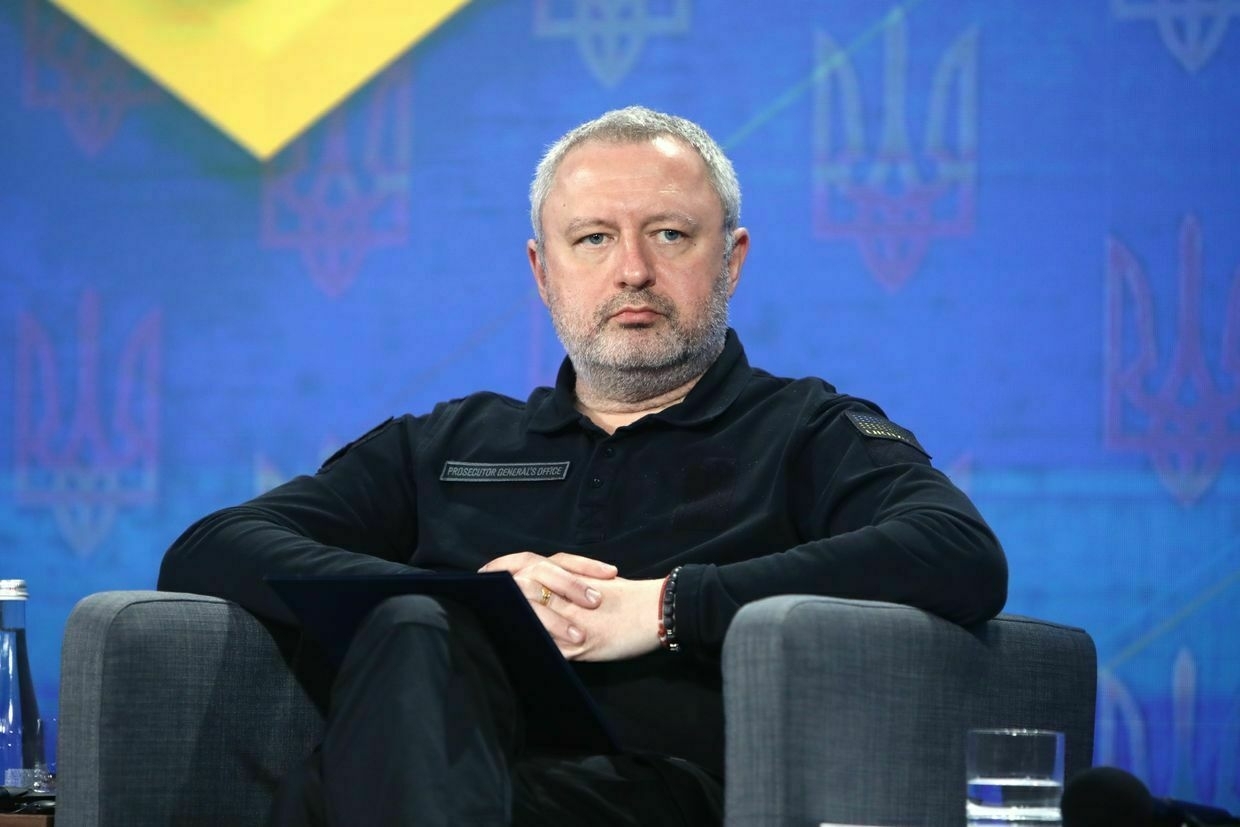
At the military prosecutor’s officeFrom 2015 to 2019, Kravchenko worked as a prosecutor at the military prosecutor’s office, then headed by Anatoly Matios.
The military prosecutor’s office, a Soviet relic, was subordinated to both the prosecutor general and defense minister and did not comply with Western legal standards. It was dissolved in 2020.
Lemenov, head of anti-corruption watchdog StateWatch, argued that Kravchenko may try to resurrect the military prosecutor’s office, which would be a dangerous tendency.
The office had a highly controversial reputation within Ukraine’s civil society. Matios and his subordinates were accused of corruption, blocking criminal cases and persecuting activists — allegations that they denied.
Kaleniuk also told the Kyiv Independent that the military prosecutor’s office lacked transparency and accountability. In 2017, public access to the asset declarations of military prosecutors was closed — a move that anti-corruption activists interpreted as an effort to hide their ill-gotten wealth.
From 2017 to 2019, Kravchenko was the prosecutor during the high treason trial against Viktor Yanukovych, a disgraced former president ousted by a popular uprising in 2014. He was convicted in absentia and sentenced to 13 years in prison for publicly urging Russian President Vladimir Putin to invade Ukraine in 2014.
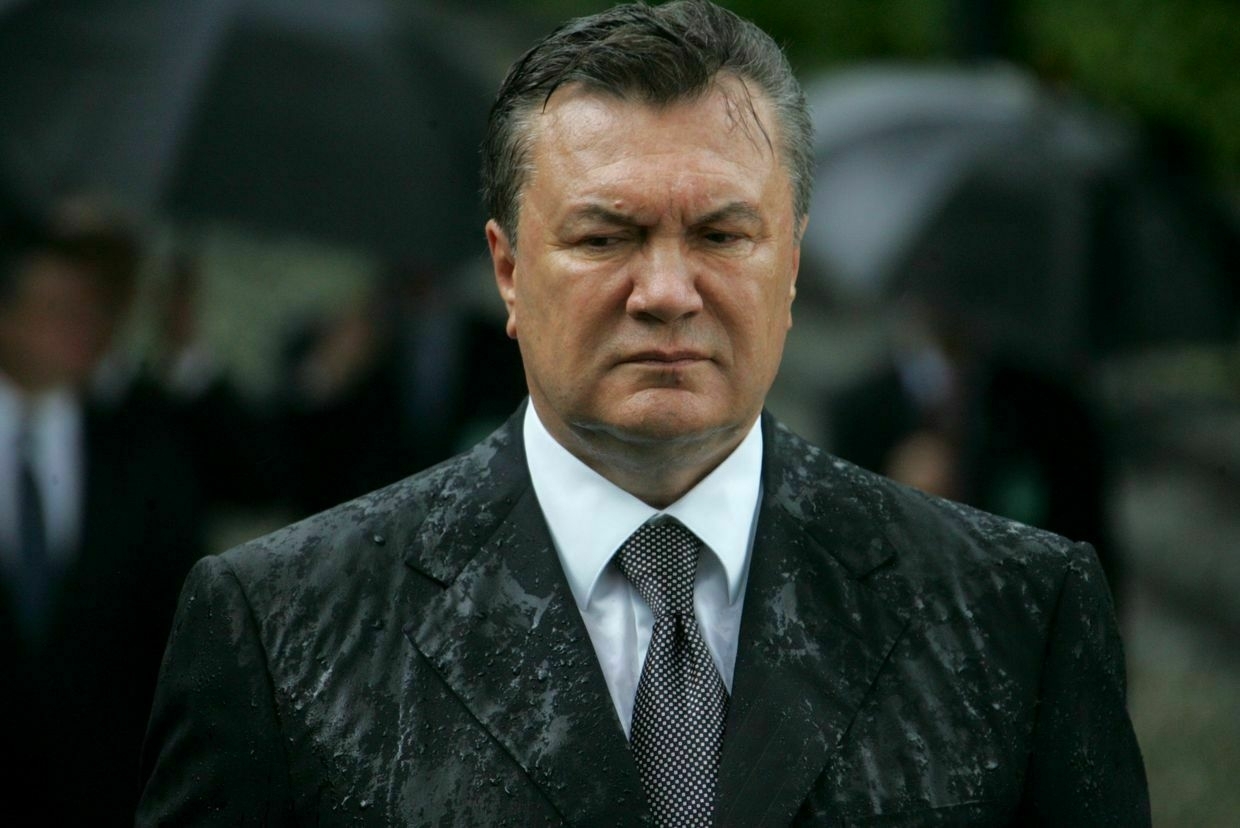
Then-president of Ukraine Viktor Yanukovych in Kyiv, Ukraine, on May 17, 2010. Ruslan Kravchenko was a prosecutor on Yanukovych’s high treason trial that took place in absentia in 2017-2019. (Sasha Mordovets / Getty Images) Some commentators, including Yurchyshyn, praised Kravchenko’s role in the trial.
Others were more skeptical.
Vitaly Tytych, who represents the families of protesters murdered during the revolution that ended Yanukovych’s presidency, has previously criticized the high treason case as lacking substance and called it a public relations stunt.
He accused the prosecutor’s office of being unprofessional, failing to collect enough evidence and making controversial statements that Yanukovych’s defense used to prove a political motive in the case.
Who is Oleksandr Klymenko, Ukraine’s new top anti-corruption prosecutor?The new Prosecutor General Andriy Kostin began his reign with a long-awaited move, ending the seemingly never-ending saga of choosing the country’s top anti-corruption prosecutor. Oleksandr Klymenko, who won the job contest back in December, was formally named the head of the Specialized Anti-Corruption Prosecutor’s Office (SAPO) on July 28.The Kyiv IndependentOleg Sukhov
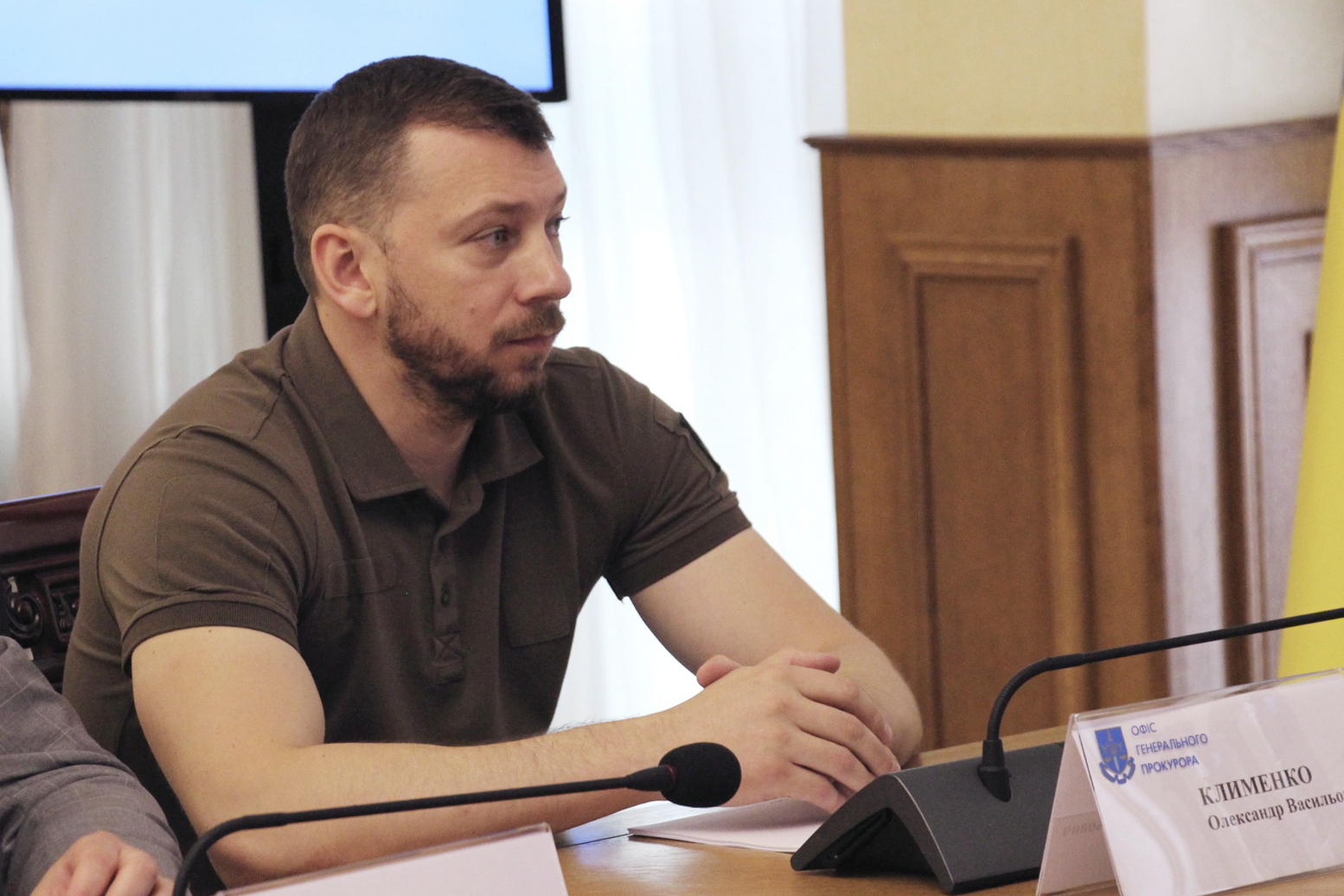
Integrity issuesIn 2020 Kravchenko applied for the job of an anti-corruption prosecutor but was vetoed by a panel of Ukrainian and international experts as not meeting integrity and ethics standards.
One of Kravchenko’s alleged unethical actions was that he had applied for and received a 42-square-meter apartment in Kyiv from the state free of charge and sold it.
The distribution of free state-provided apartments to prosecutors and other officials is a widespread practice in Ukraine, although it is often criticized on ethical grounds.
Kaleniuk, who was on the panel, said that Kravchenko had bypassed the waiting list due to a war veteran document and acquired the apartment ahead of schedule.
“When there is a high level of corruption in the country, a prosecutor general with integrity issues is being appointed.”
However, he did not actually take part in the war and got war veteran status because he was a military prosecutor in the Donbas, where Russia launched an invasion in 2014, she added.
Kravchenko lived in an apartment in Kyiv owned by his wife at the time.
Asked by the vetting panel why he needed another apartment, he said: "I'm a man first of all, today I'm married, and tomorrow I might not be."
It is ironic that, due to the appointment procedures, "to become a rank-and-file anti-corruption prosecutor, you have to meet integrity standards, and to become prosecutor general, you don't," Yurchyshyn said.
Kravchenko denied the accusation of unethical behavior on June 22, saying on Facebook that he had a right to acquire the apartment and that he sold it in order to buy a bigger one.
In 2022, he also took part in a contest to become the chief of the National Anti-Corruption Bureau of Ukraine (NABU). However, he was vetoed again for not meeting integrity and ethics standards.
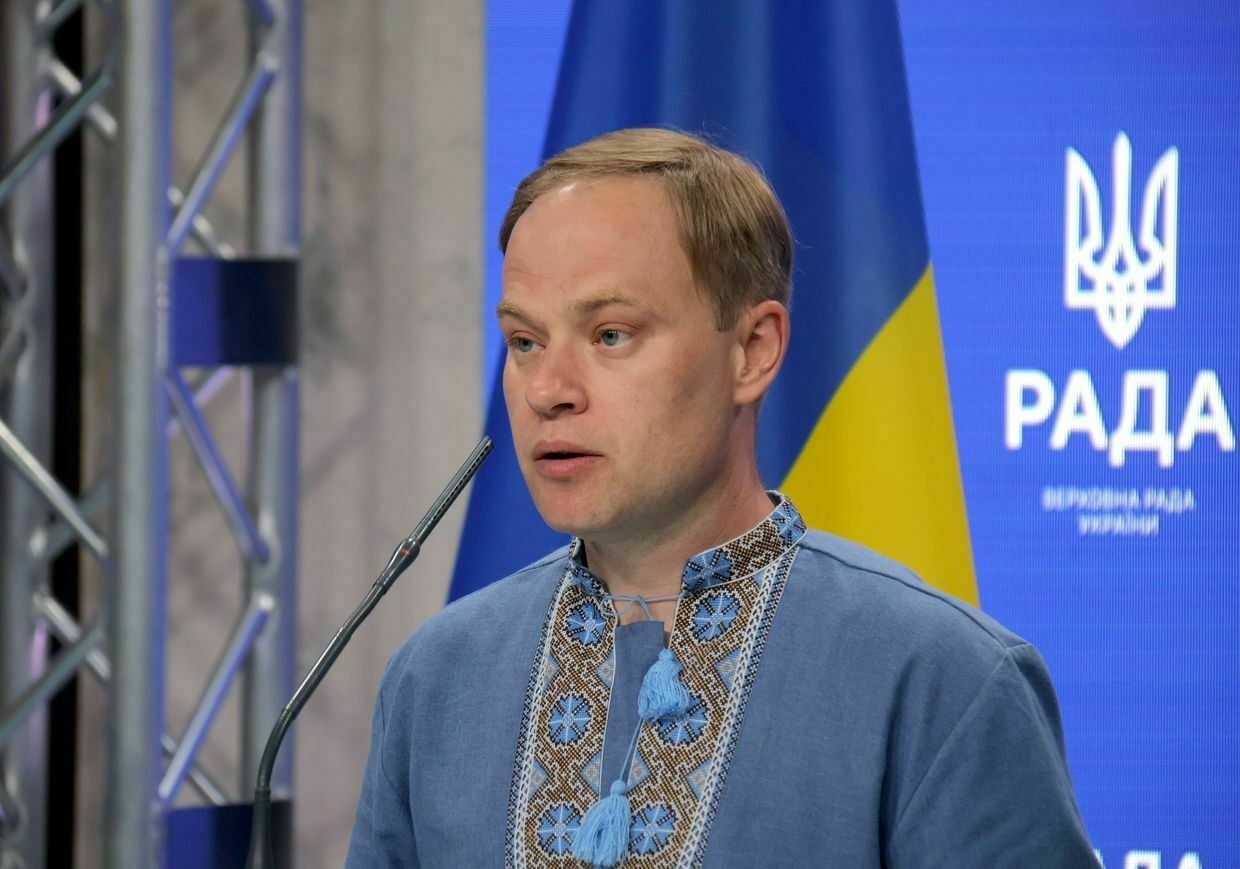
Chairman of the Verkhovna Rada Committee on Freedom of Speech Yaroslav Yurchyshyn speaks during a briefing in Kyiv, Ukraine, on May 8, 2024. (Yevhen Kotenko / Ukrinform/Future Publishing via Getty Images) The vetting panel argued that the income of Kravchenko's parents did not meet their expenses, signaling that he could be using them as a front for his own assets.
During the vetting process, Kravchenko indicated max.noumann@gmail.com as his email, triggering another ethical concern. The vetting panel said that the name was similar to that of Max Naumann, the head of a pro-Hitler Jewish group in Nazi Germany that called for the assimilation of German Jews.
Kravchenko said that this was a coincidence, and that he had made the name up.
"When there is a high level of corruption in the country, a prosecutor general with integrity issues is being appointed," Yurchyshyn said. "This is not a good signal for society, and this will be perceived negatively by society and our Western partners."
Ukraine’s anti-corruption bureau makes progress yet doesn’t take on top presidential alliesAs Ukraine’s civil society and the country’s Western partners call on the authorities to fight corruption amid Russia’s full-scale invasion, the National Anti-Corruption Bureau of Ukraine (NABU) is showing mixed results. A year has passed since Semen Kryvonos became the head of the NABU in March 2023, replacing the bureau’The Kyiv IndependentOleg Sukhov
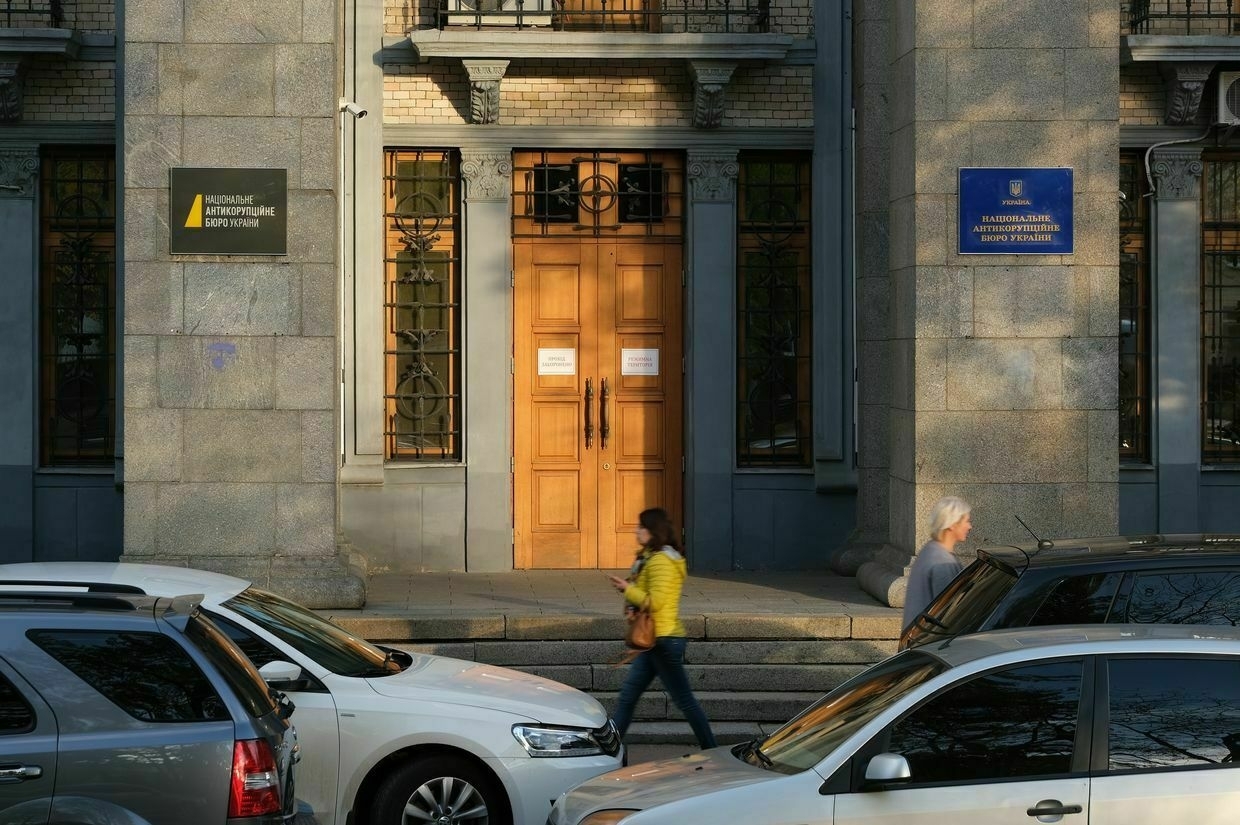
Recent jobsFrom 2021 to 2022, Kravchenko was the chief prosecutor of Bucha in Kyiv Oblast, and oversaw the investigation of war crimes committed by Russian troops in the town.
During their brief occupation of Bucha and nearby areas in February and March 2022, Russian troops massacred hundreds of civilians.
As part of the Bucha investigation, 24 indictments against Russian soldiers have been sent to courts for trials in absentia.
Kravchenko also served as the head of the Kyiv Oblast military administration from 2023 to 2024 — an equivalent to a governor, appointed by the president.
Kravchenko was also appointed by the Cabinet as the head of the State Tax Service in December 2024 and served in that role until June.
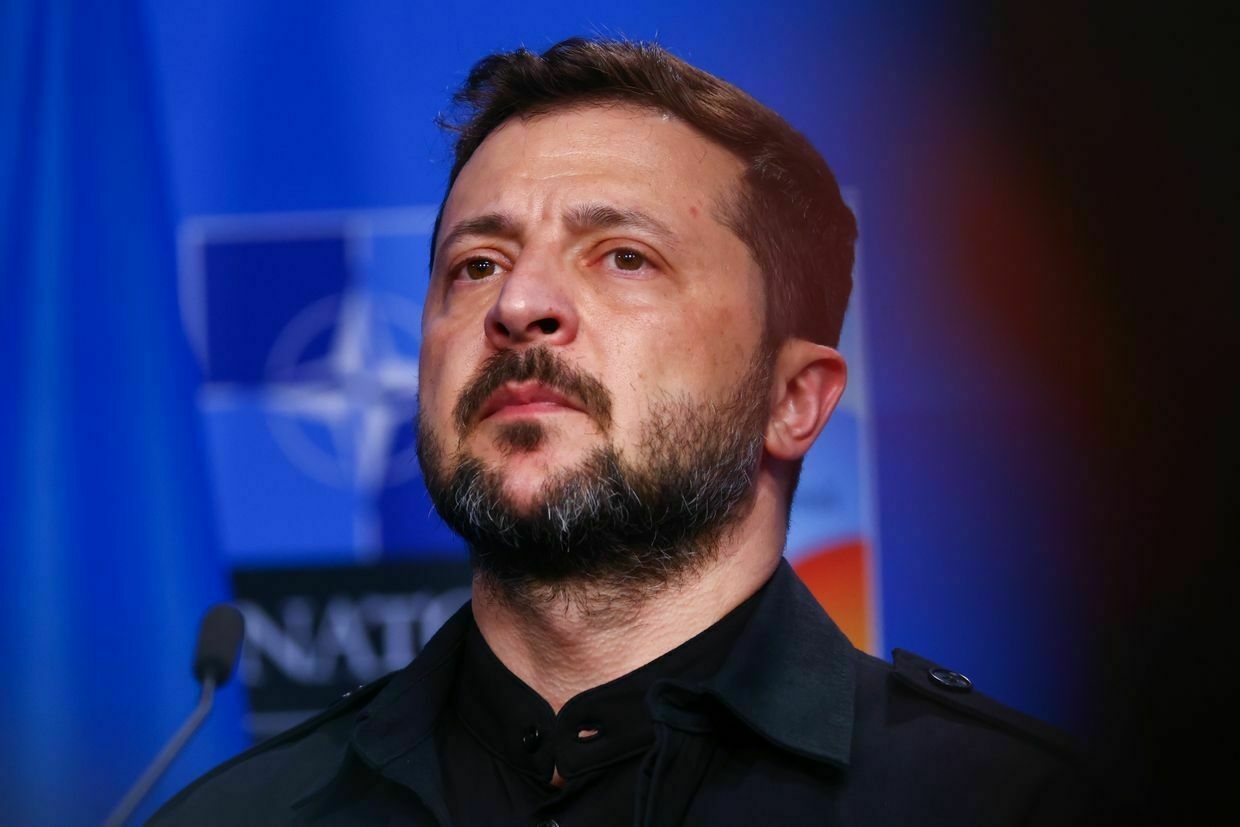
President Volodymyr Zelensky attends a meeting between NATO, the European Union, and Ukraine in The Hague, Netherlands, on June 24, 2025. (Beata Zawrzel / NurPhoto via Getty Images) Despite the shortness of Kravchenko’s tenure there, Zhelezniak argued that Kravchenko had been effective as the Tax Service’s head: There were no corruption scandals, budget revenue rose, and the number of businesses' complaints fell.
Kaleniuk and Yurchyshyn argued, however, that Kravchenko's stint in the role was too short to allow for meaningful assessment.
Yet the main issue remains — Kravchenko’s alleged dependence on the President’s Office could make it difficult for prosecutors to resist political interference.
"Kravchenko is not independent. He is convenient for (Zelensky's) Oleh Tatarov," Kaleniuk said in a reference to Zelensky's controversial deputy chief of staff responsible for law enforcement.
Note from the author:
Hello! My name is Oleg Sukhov, the guy who wrote this piece for you.
I was born in Russia and moved to Ukraine in 2014 because I couldn't stand the suffocating atmosphere of that semi-totalitarian country. I used to think it might be possible to transform Russia into a liberal Western-oriented country. Now it's clear that it's a lost cause.
But at least I can atone for the crimes of my homeland by exposing its barbaric aggression against Ukraine and providing objective and independent coverage of what is going on there. I'm also trying to contribute to Ukraine's transformation into a full-fledged Western liberal democracy strong enough to defeat Russia.
Our publication needs help from every one of you — support Ukrainian wartime journalism, become a member of the Kyiv Independent.
Ukraine’s judicial reform relaunch shows mixed results so farIn late 2023, Ukraine finally re-launched the process of vetting judges as part of a long anticipated judicial reform – a key condition for Ukraine’s accession to the European Union. Four months later, the results are mixed. On the one hand, the High Qualification Commission, a top judicial body, has approvedThe Kyiv IndependentOleg Sukhov
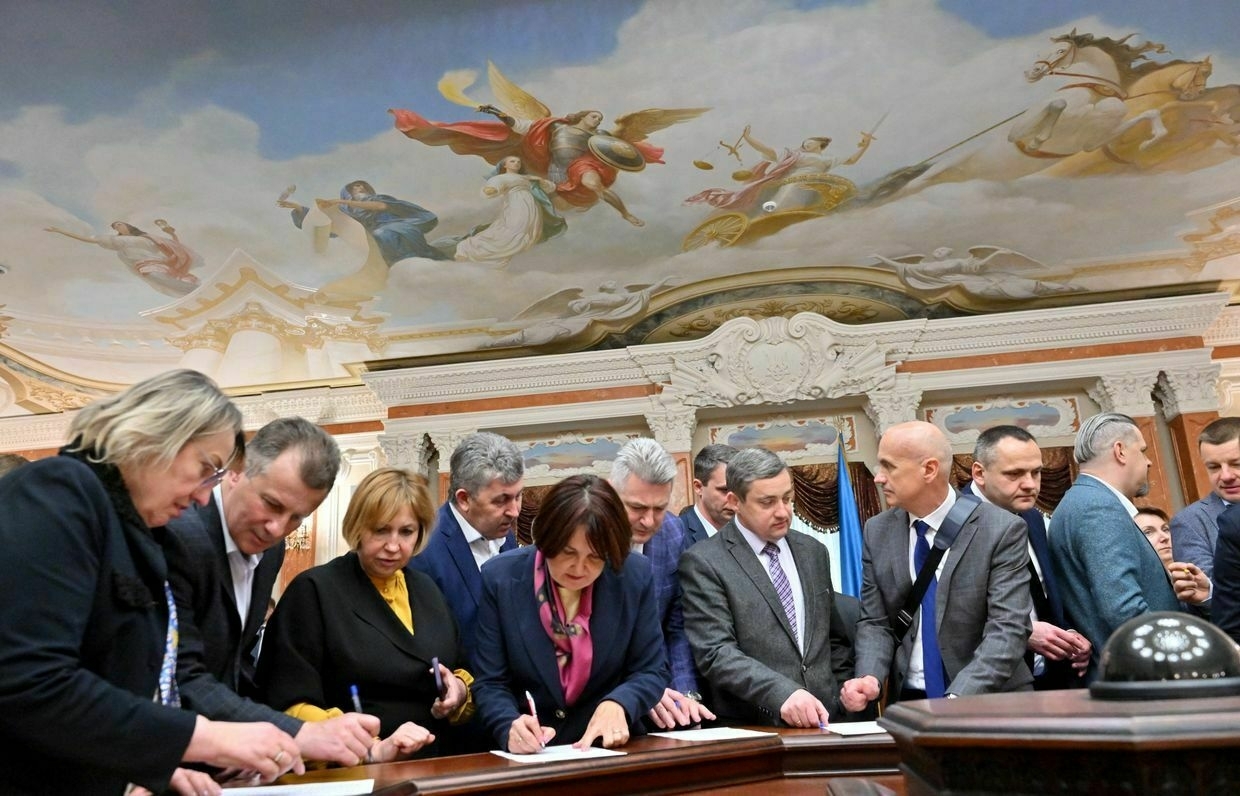
-
Command change in 72nd Mechanized Brigade
The reformation of the Ukrainian Army into corps formations is in full swing. With the creation of new command structures and units, experienced commanders are being called up from brigades…
-
Who are the Ukrainian Cossacks and why they have nothing in common with the Russians
